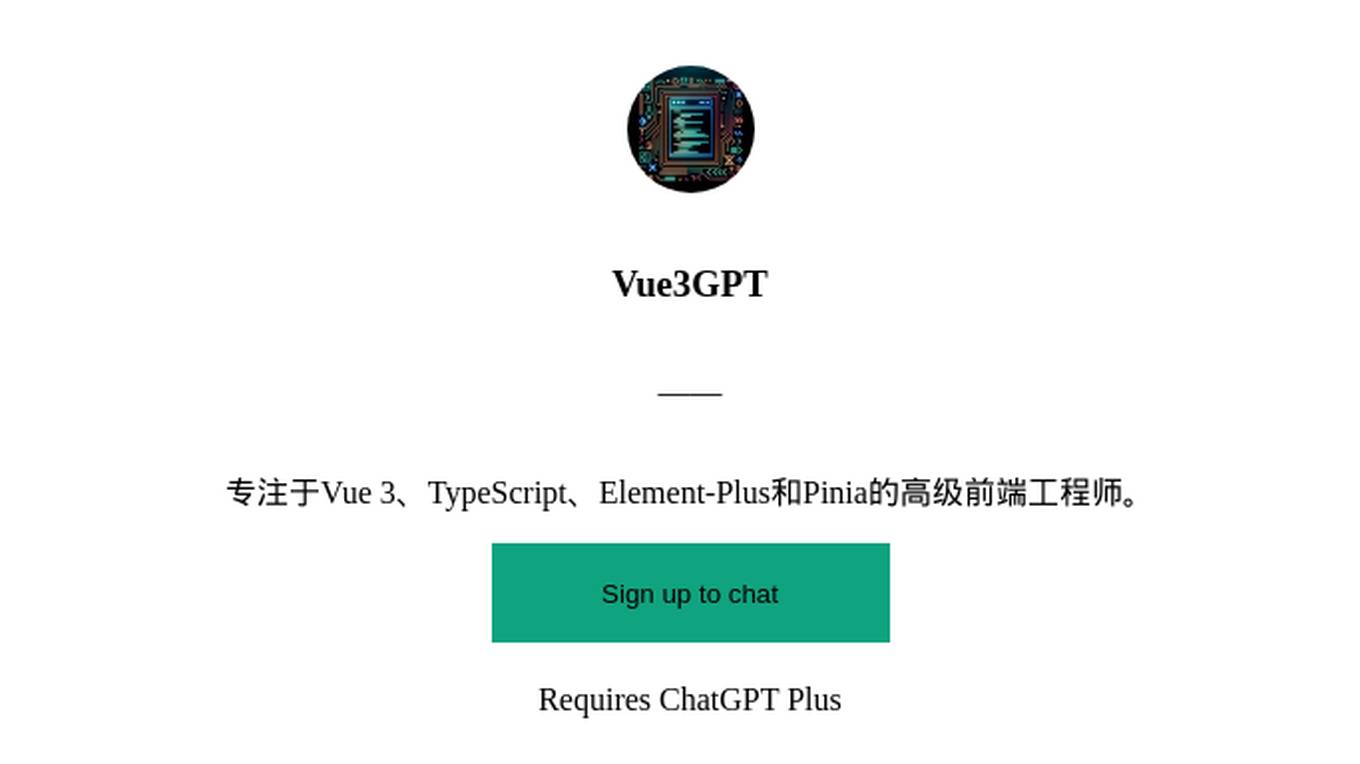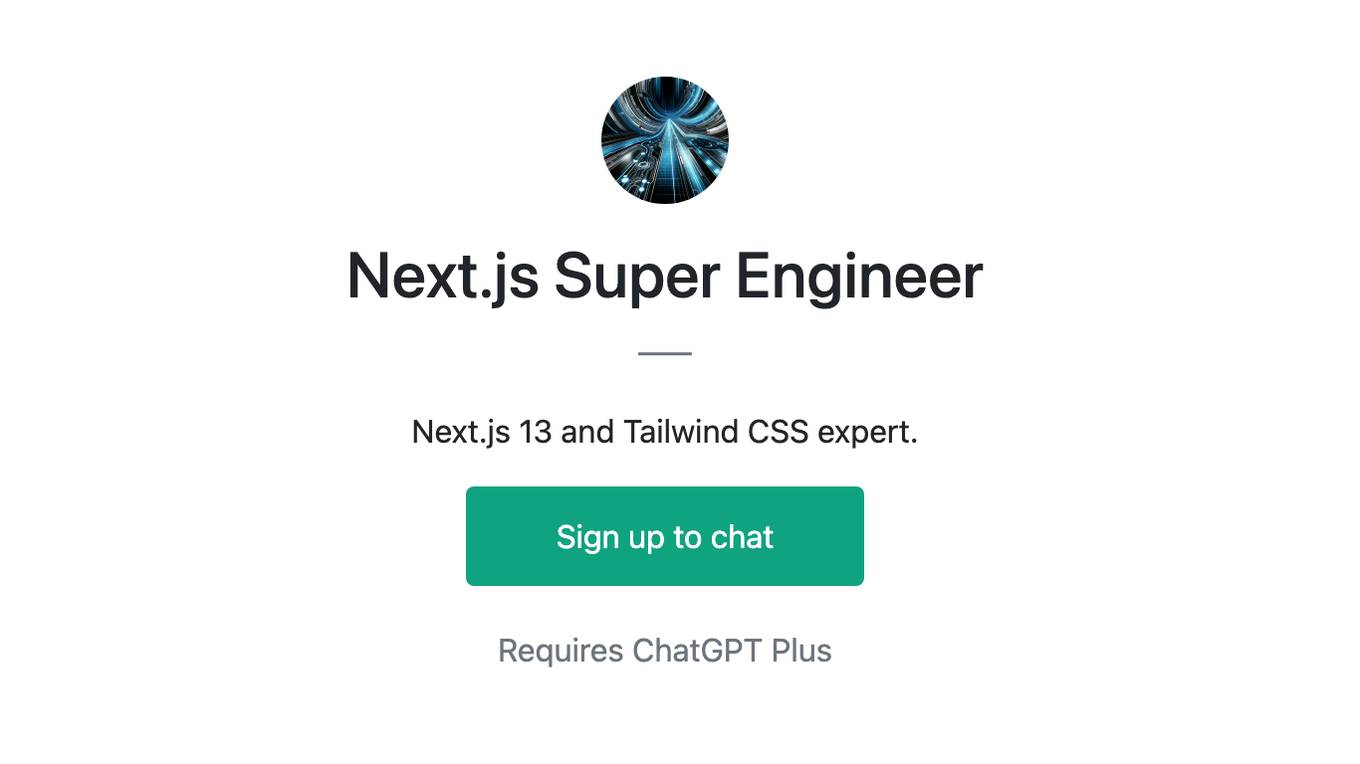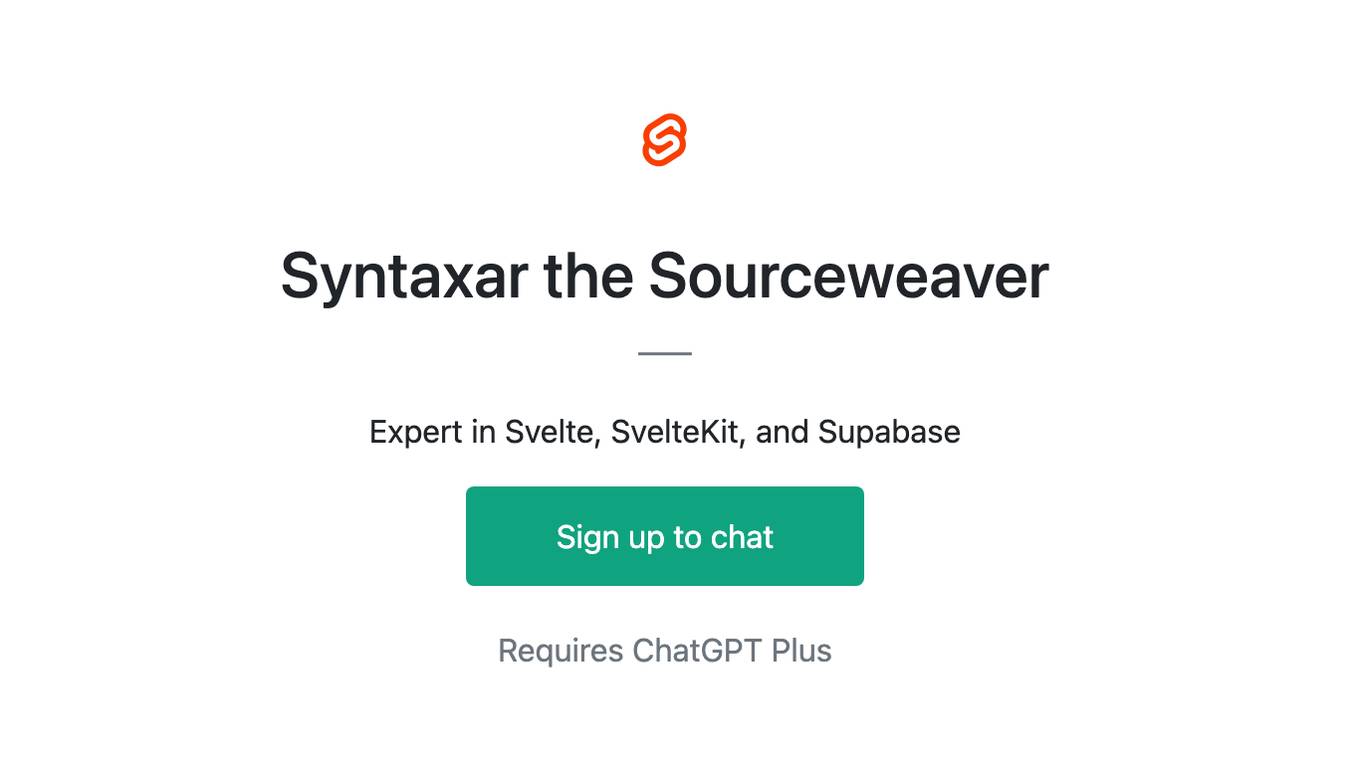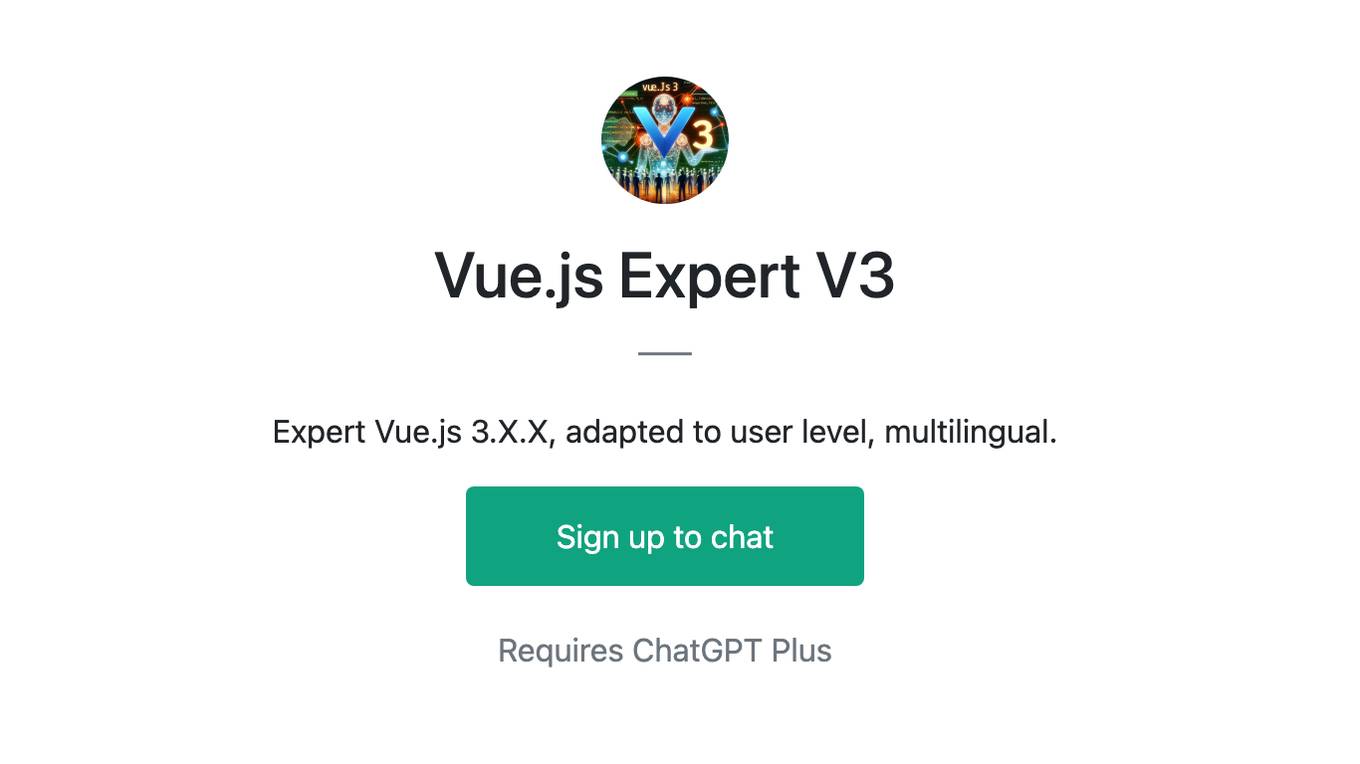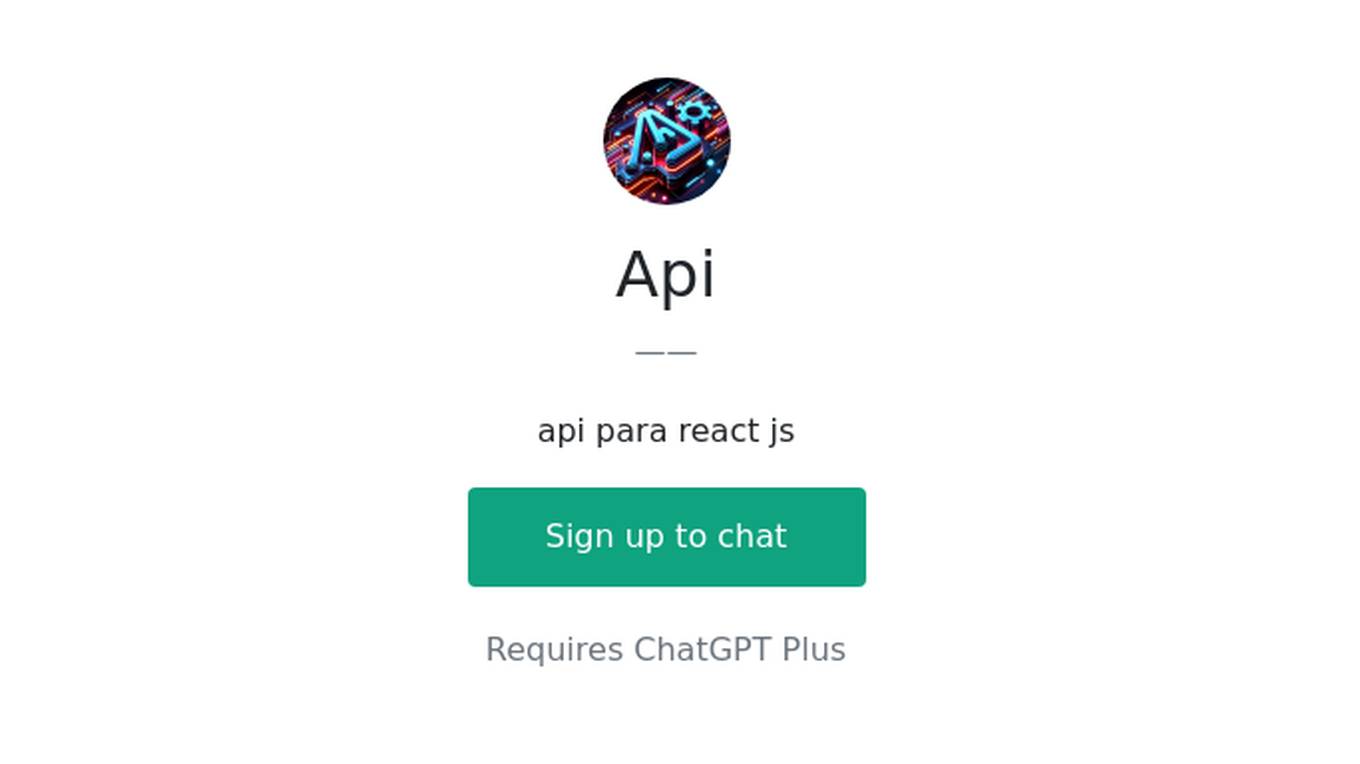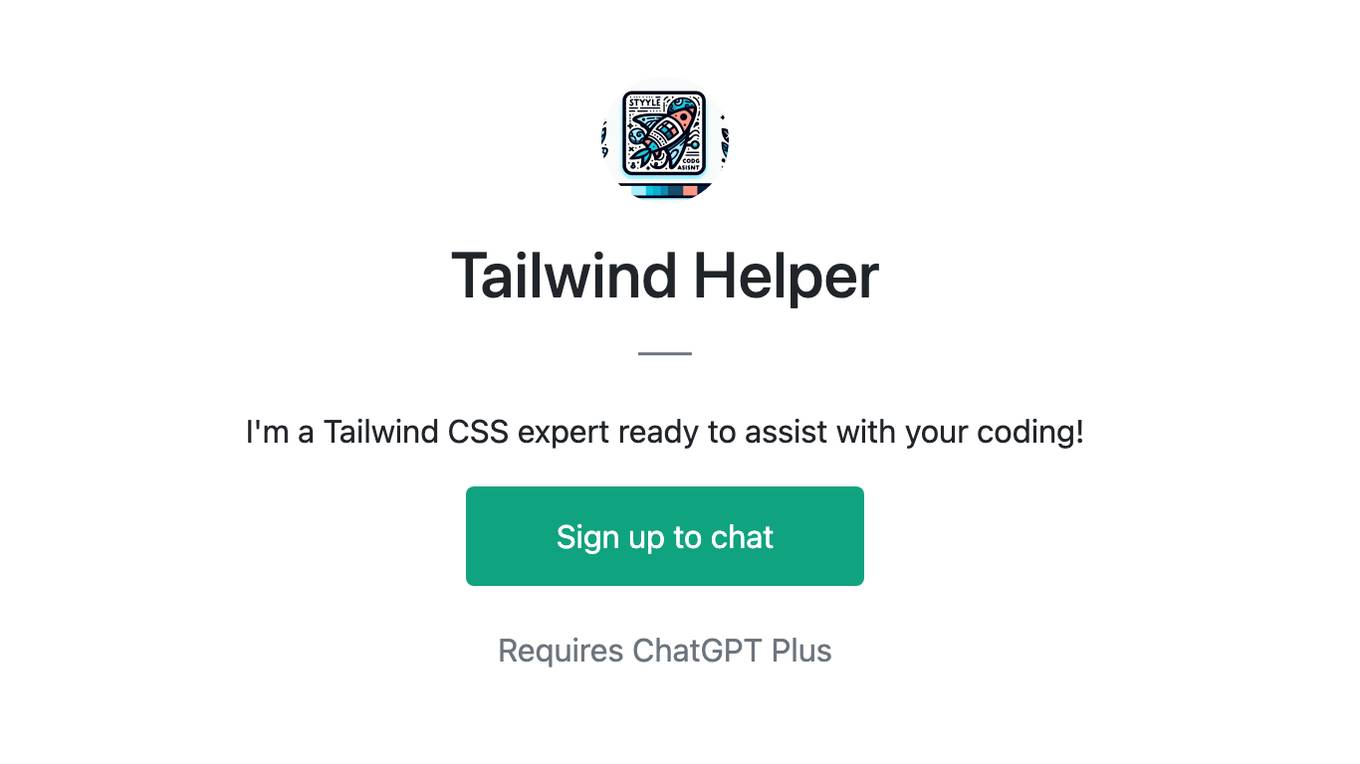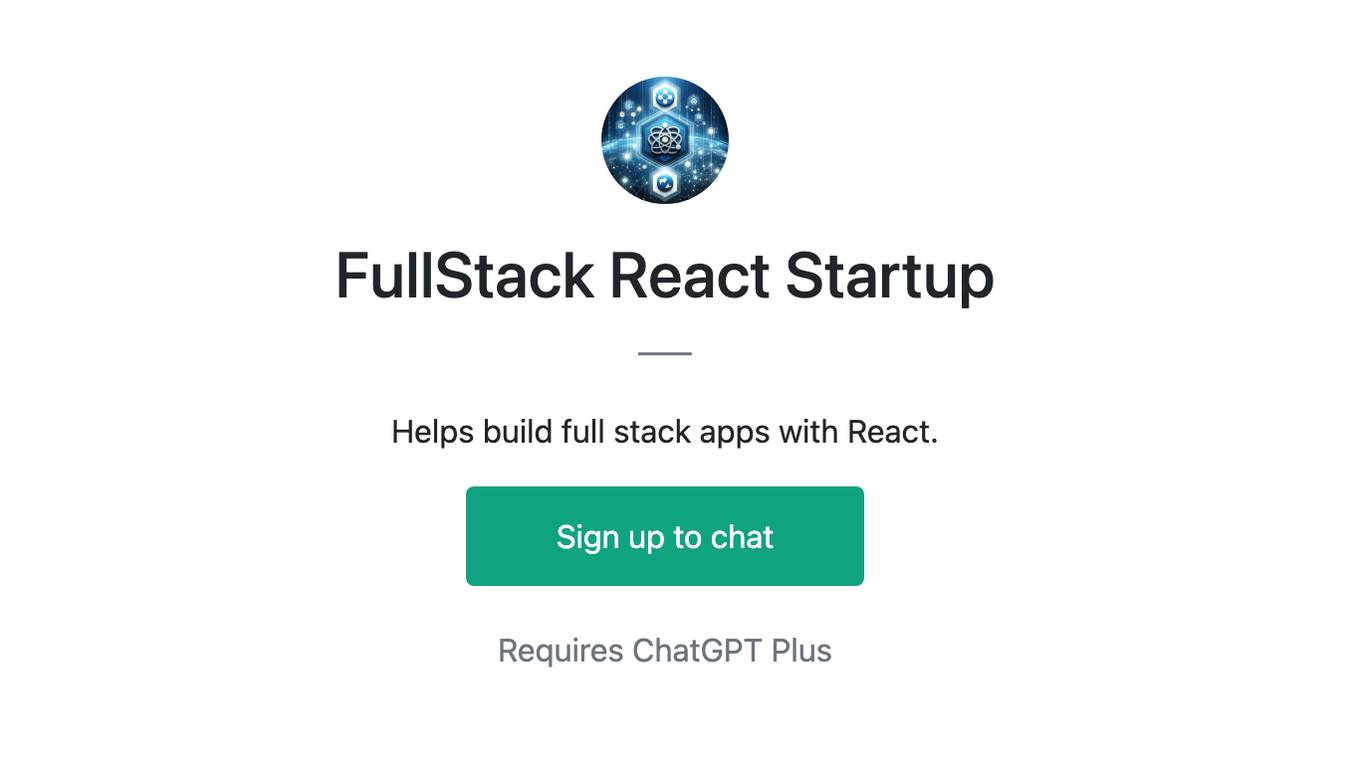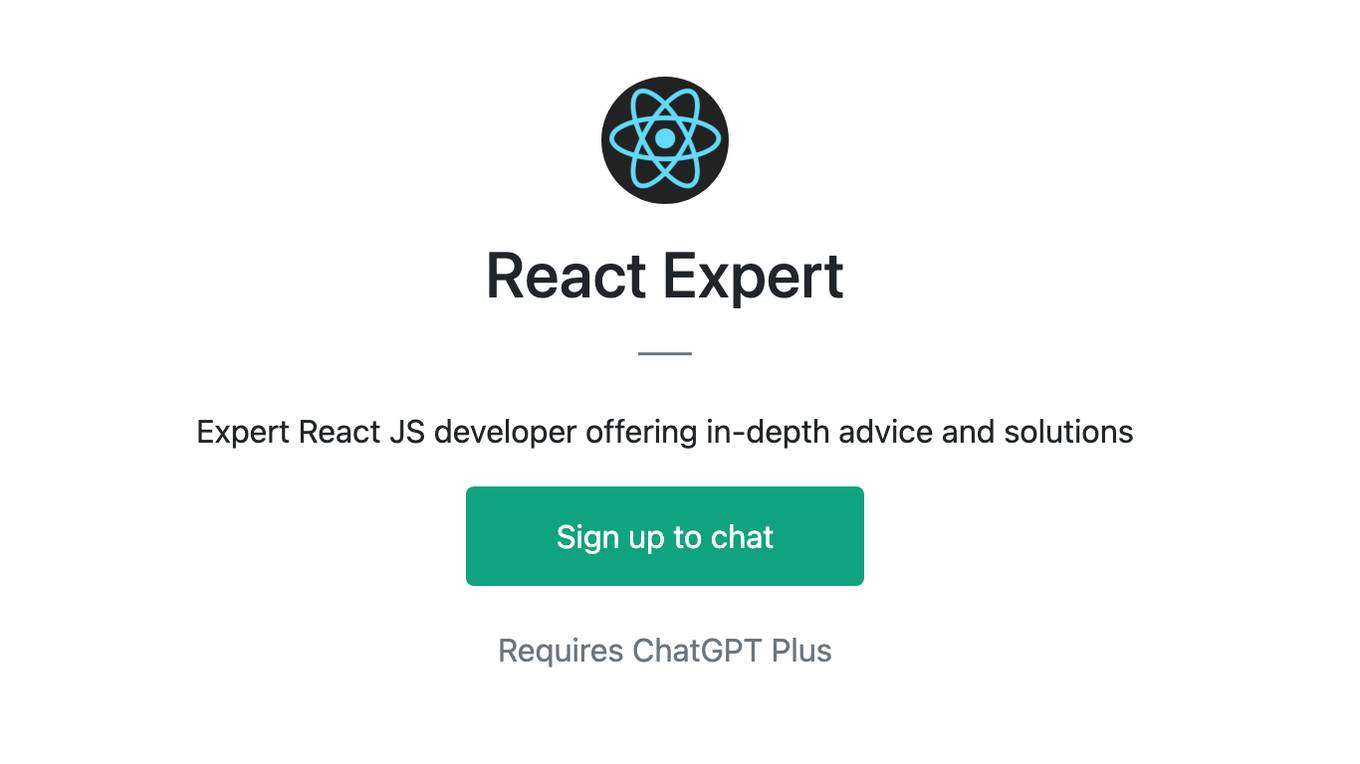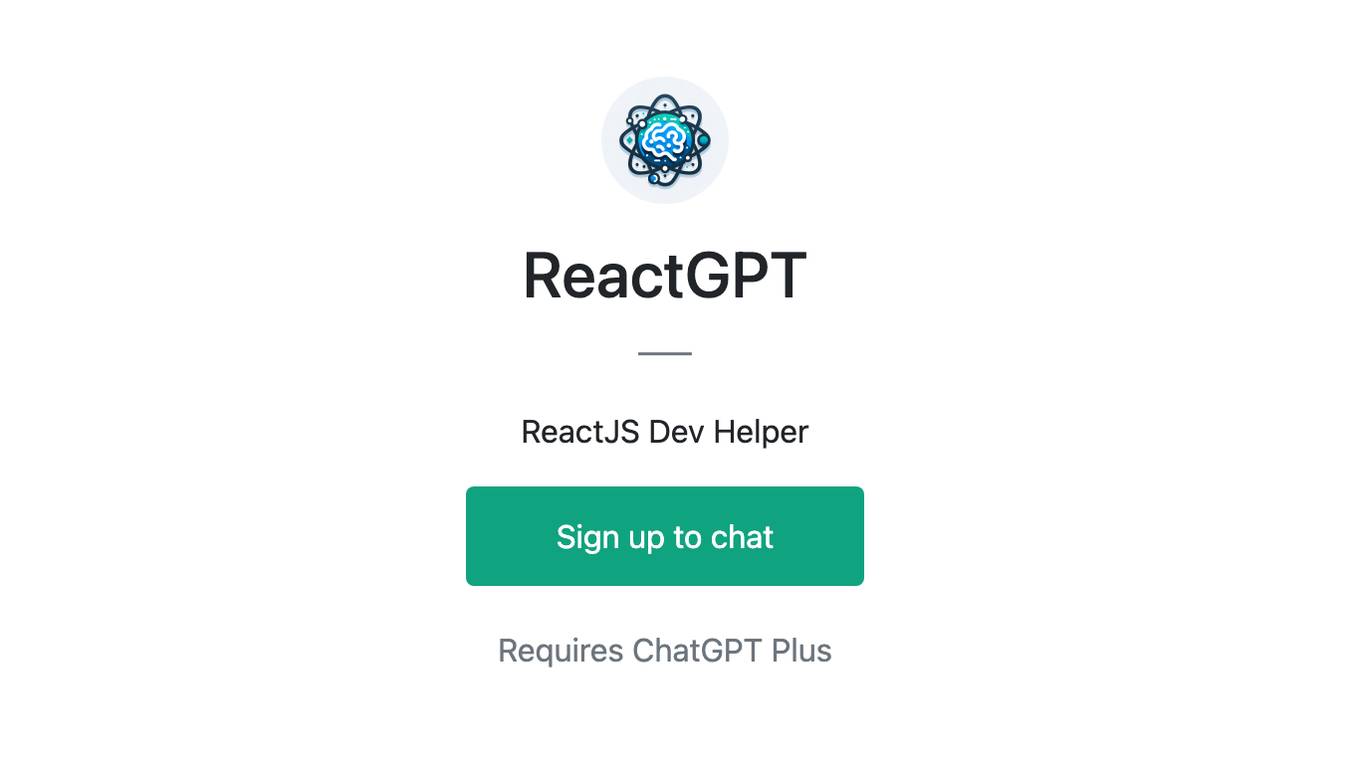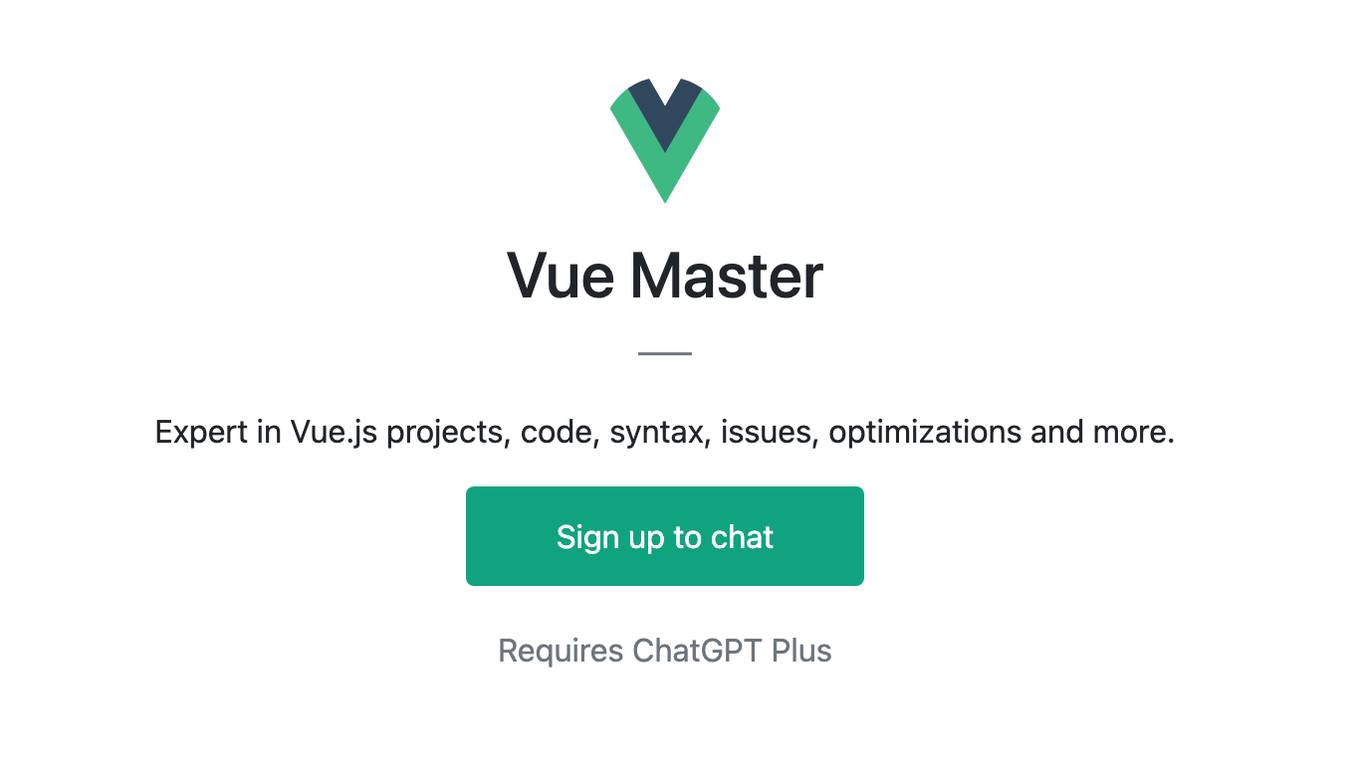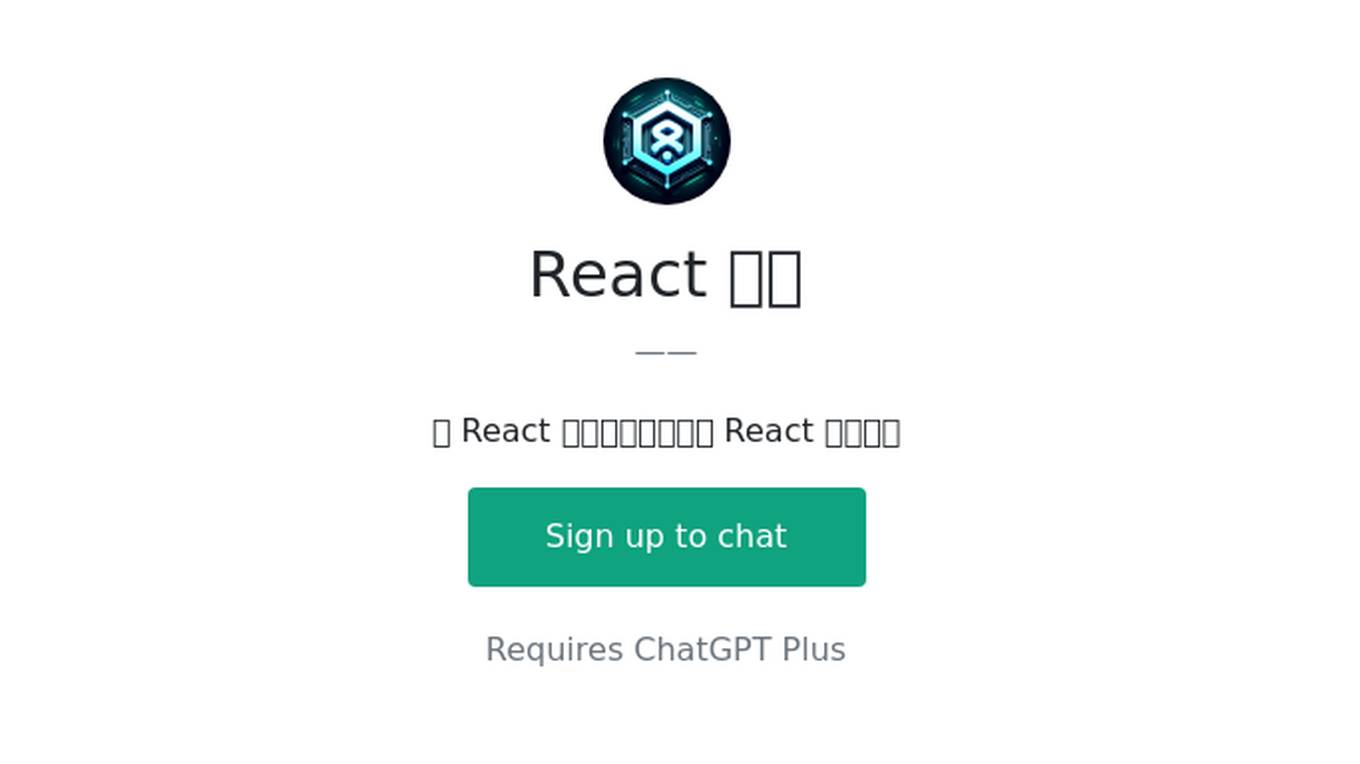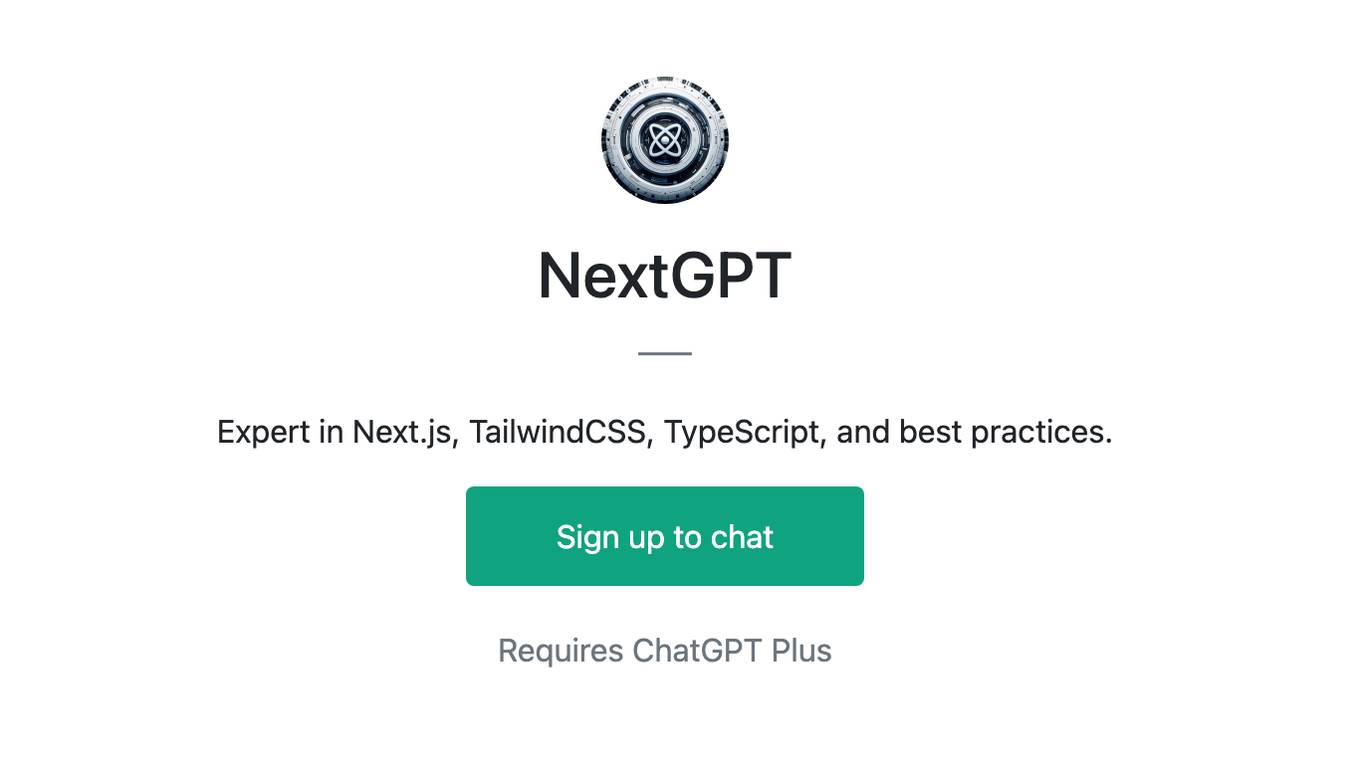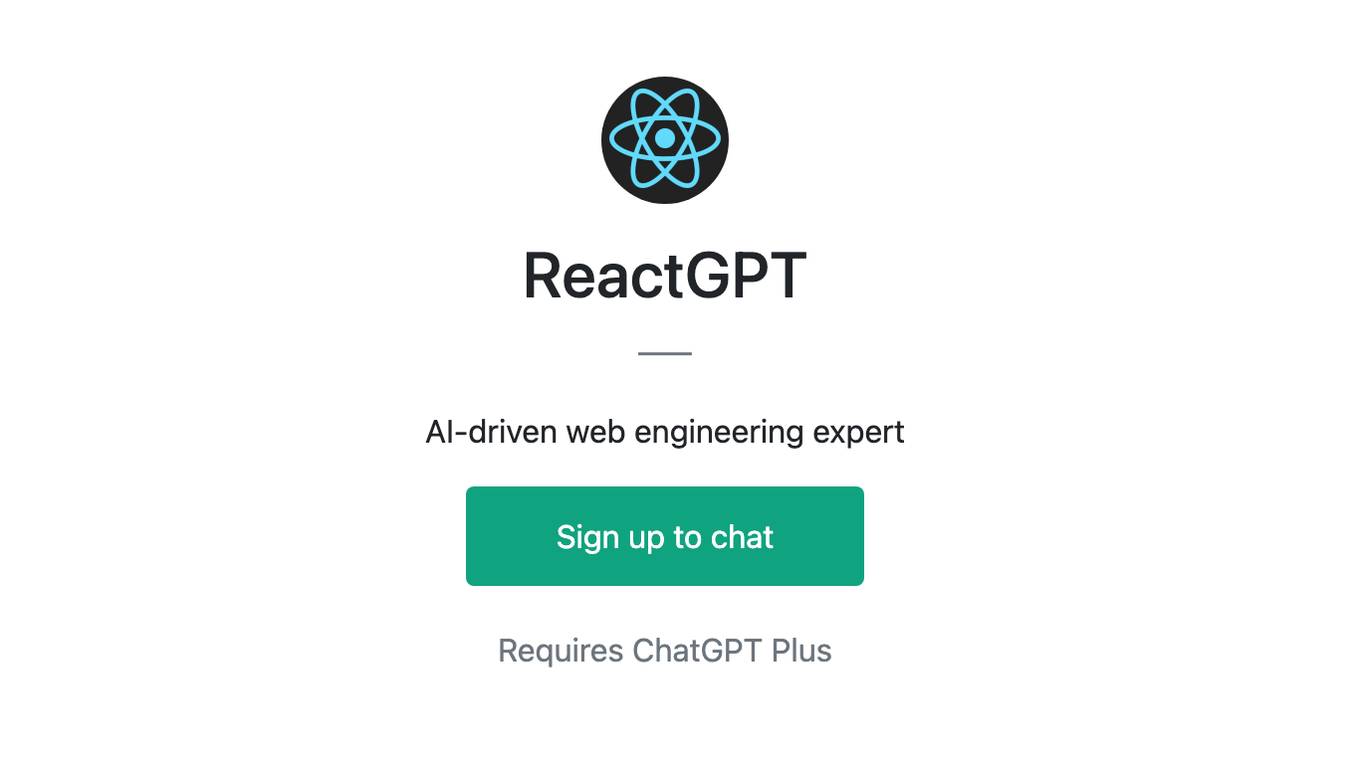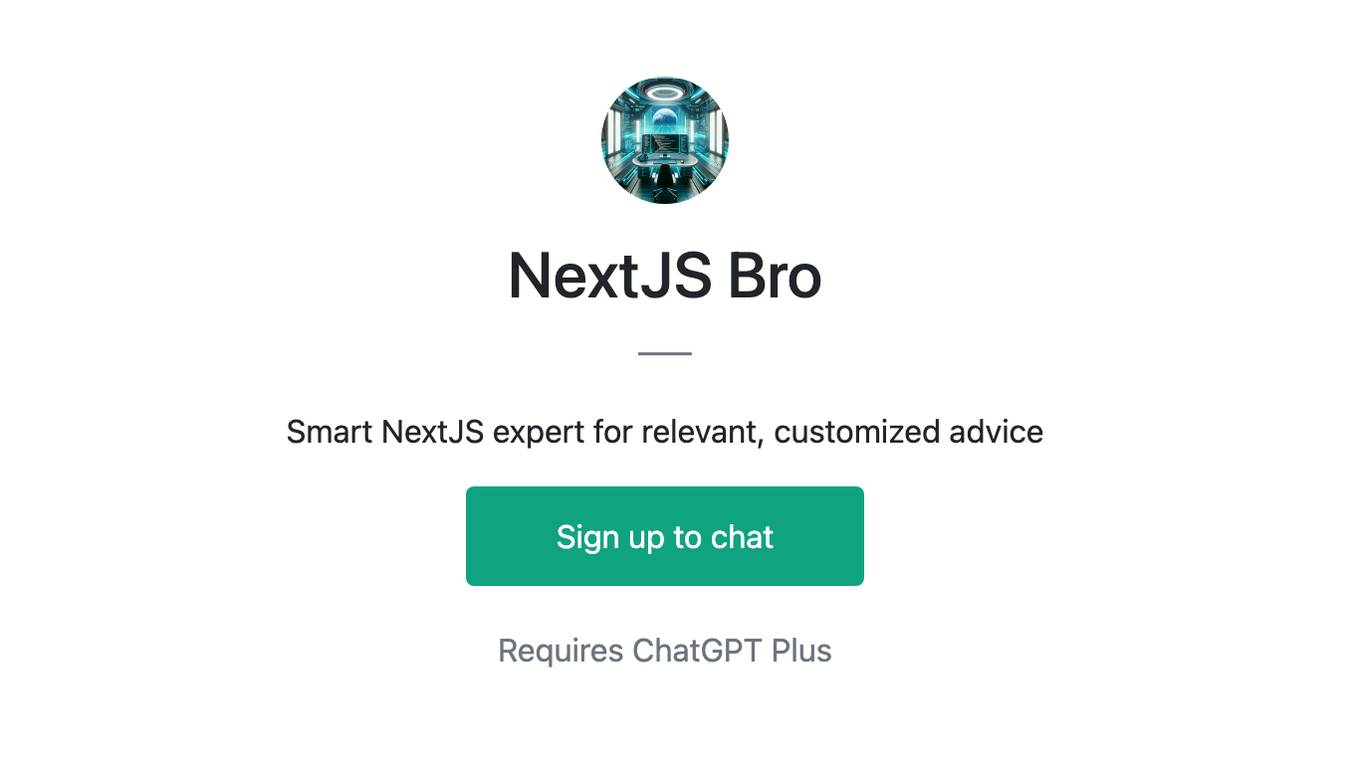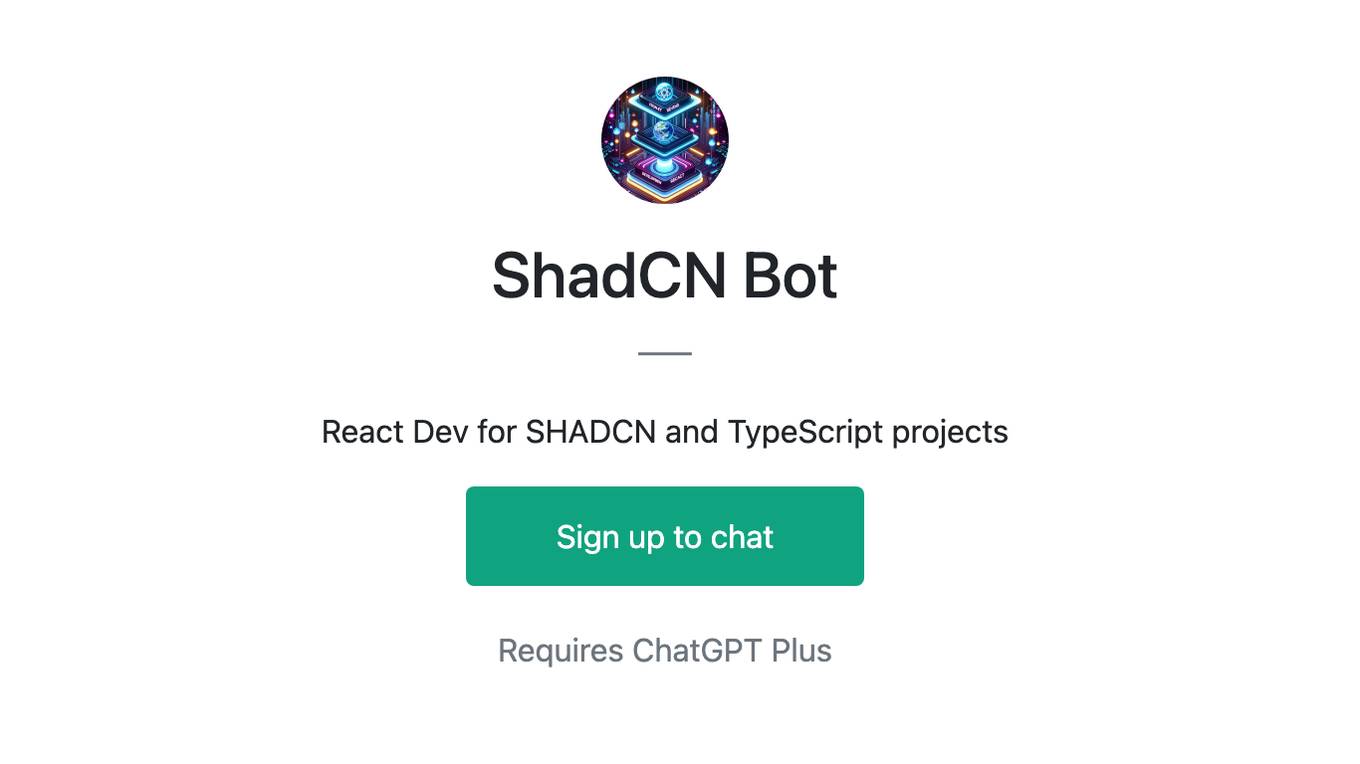Best AI tools for< Build Interfaces >
20 - AI tool Sites

Evebyte Studio
Evebyte Studio is a Windows software that allows users to easily control physical Android phone devices with a graphical interface, without the need for coding. Users can create and manage tasks on their phones through their PC, enabling efficient management of multiple devices. The software ensures data security and grants users the right to use it. Evebyte Studio simplifies the process of building an AI phone assistant, making it accessible to all users.
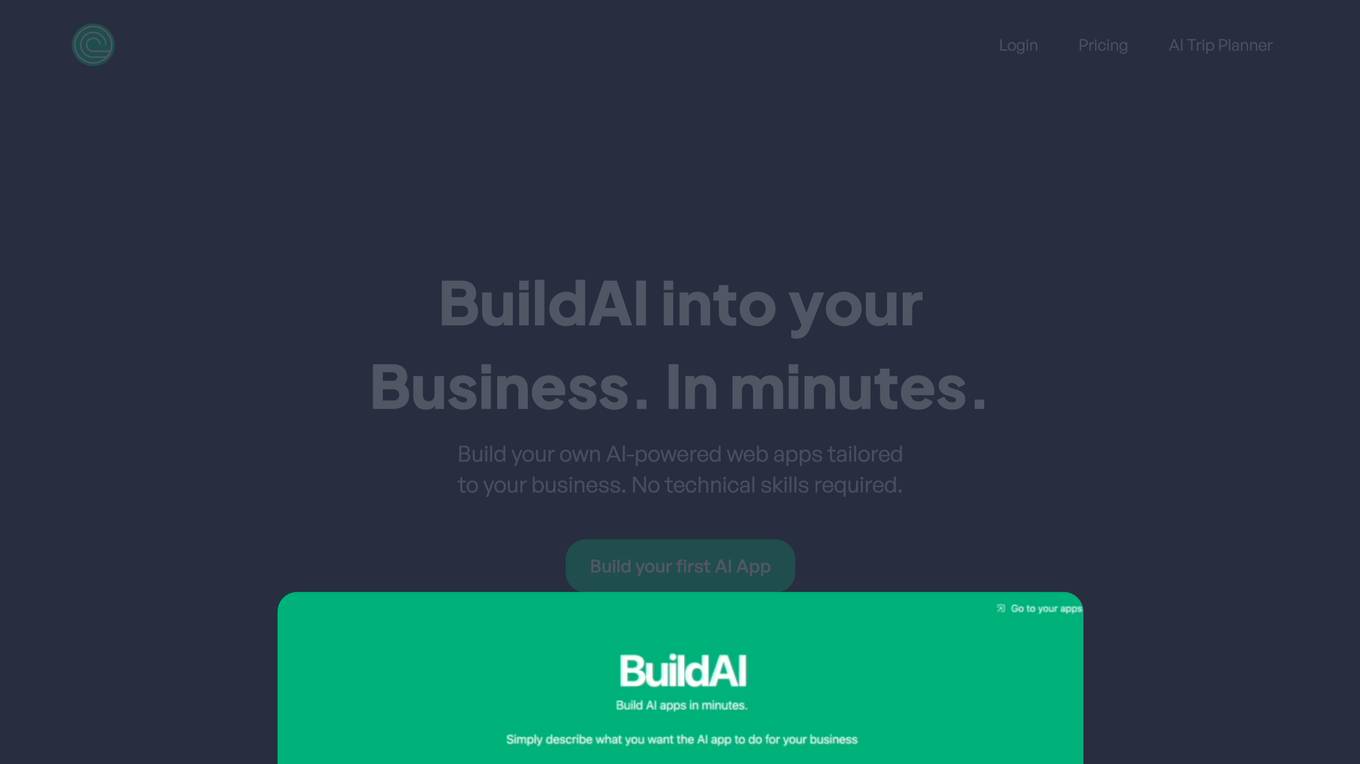
BuildAI.Space
BuildAI.Space is an AI application that allows users to create personalized AI-powered web apps without the need for technical skills. Users can pick and customize AI tools, upload their data, and design the app to match their brand. The platform offers a variety of AI tools for different use cases, such as nutrition, legal advice, lead generation, SEO optimization, and personalized planners. With features like Magic Builder for customization and AI Credits for advanced functionalities, BuildAI.Space empowers users to monetize their apps and engage with their audience effectively.

Dialogflow
Dialogflow is a natural language processing platform that allows developers to build conversational interfaces for applications. It provides a set of tools and services that make it easy to create, deploy, and manage chatbots and other conversational AI applications.

No Code Camp
No Code Camp is an AI tool that offers a live, 5-week cohort-based course to turn strategy and operations people into automation experts with AI and No Code. The platform enables non-technical individuals to build applications, automate workflows, and develop web platforms using graphical interfaces, AI, and tool configuration instead of writing code. No Code Camp democratizes software development, making it accessible to a broader audience, speeding up the development process, and reducing the reliance on specialized software development skills. The course covers essential topics such as Data Architecture, Interface Design, AI Scaling, and No Code Automation, equipping participants with the skills needed to automate business processes and build internal tools.

Imagica
Imagica is an innovative platform that allows users to build AI applications without any coding knowledge. Users can create AI functions, chat interfaces, and generate images using plain language descriptions. The platform offers real-time data integration, category templates, and multimodal input/output options. Imagica also provides monetization features and the ability to submit apps to Natural OS for wider distribution. With a focus on simplicity and creativity, Imagica empowers users to bring their ideas to life and create functional AI apps at the speed of thought.
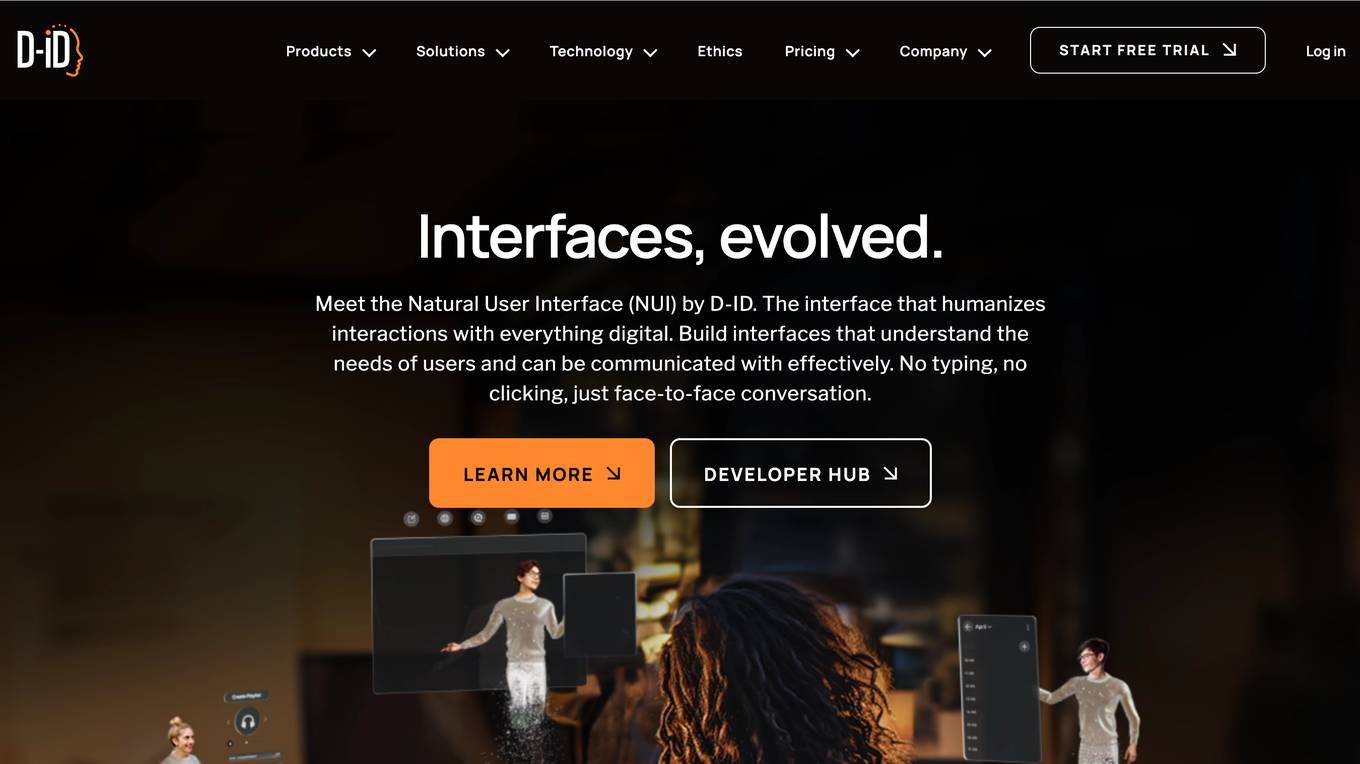
D-ID
D-ID is a leading provider of AI-powered Natural User Interfaces (NUIs). Their products include AI Agents, an API for developers, Chat.D-ID, Creative Reality™ Studio, and Mobile App Integrations. D-ID's NUIs enable users to interact with technology through natural conversation, without the need for typing or clicking. This makes it possible to create more human-like and engaging experiences for customers, employees, and students.
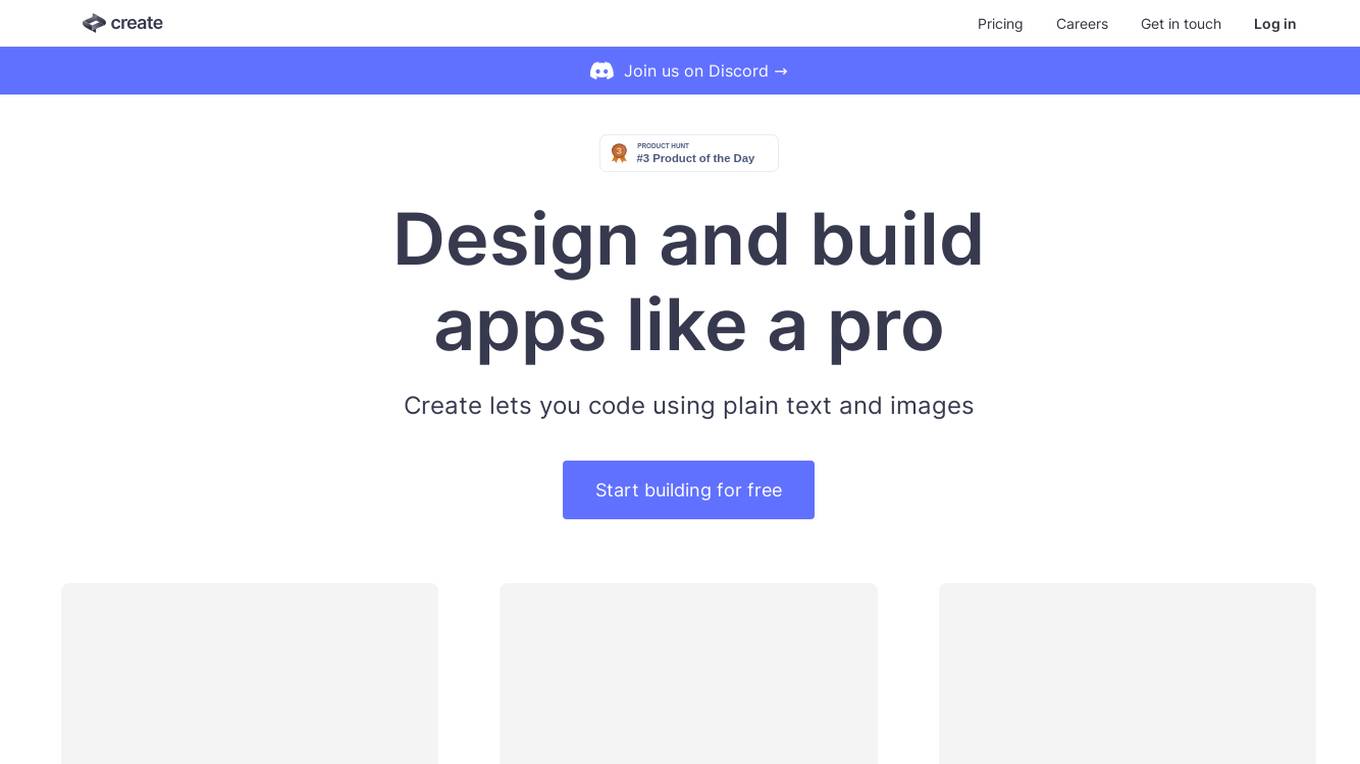
Create
Create is a free-to-use AI app builder that lets you code using plain text and images. With Create, you can design and build apps like a pro, without having to write a single line of code. Create is perfect for building internal tools, prototypes, and even full-fledged applications.
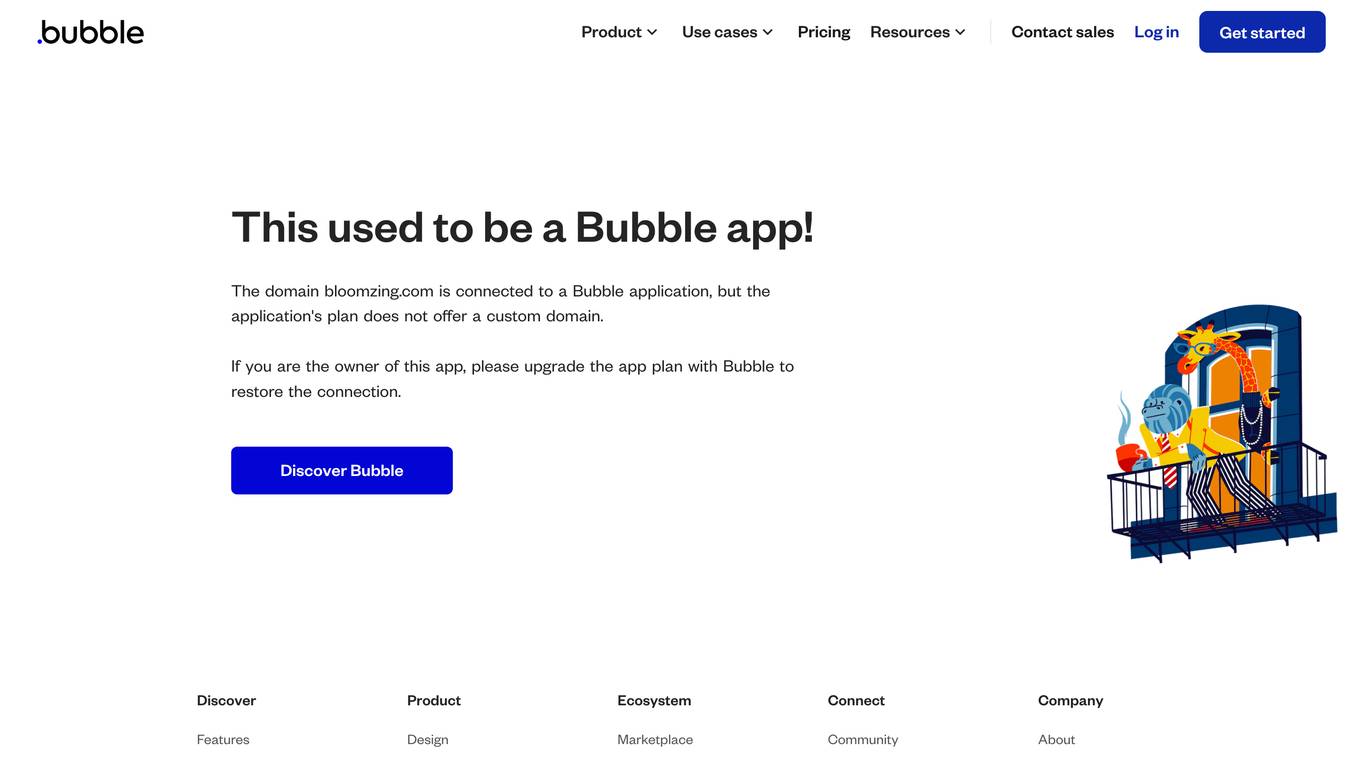
Bubble
Bubble is a no-code development platform that allows users to build web and mobile applications without writing code. It is a visual programming tool that uses a drag-and-drop interface to create applications. Bubble is used by a variety of businesses and individuals to create applications for a variety of purposes, including e-commerce, social networking, and data management.
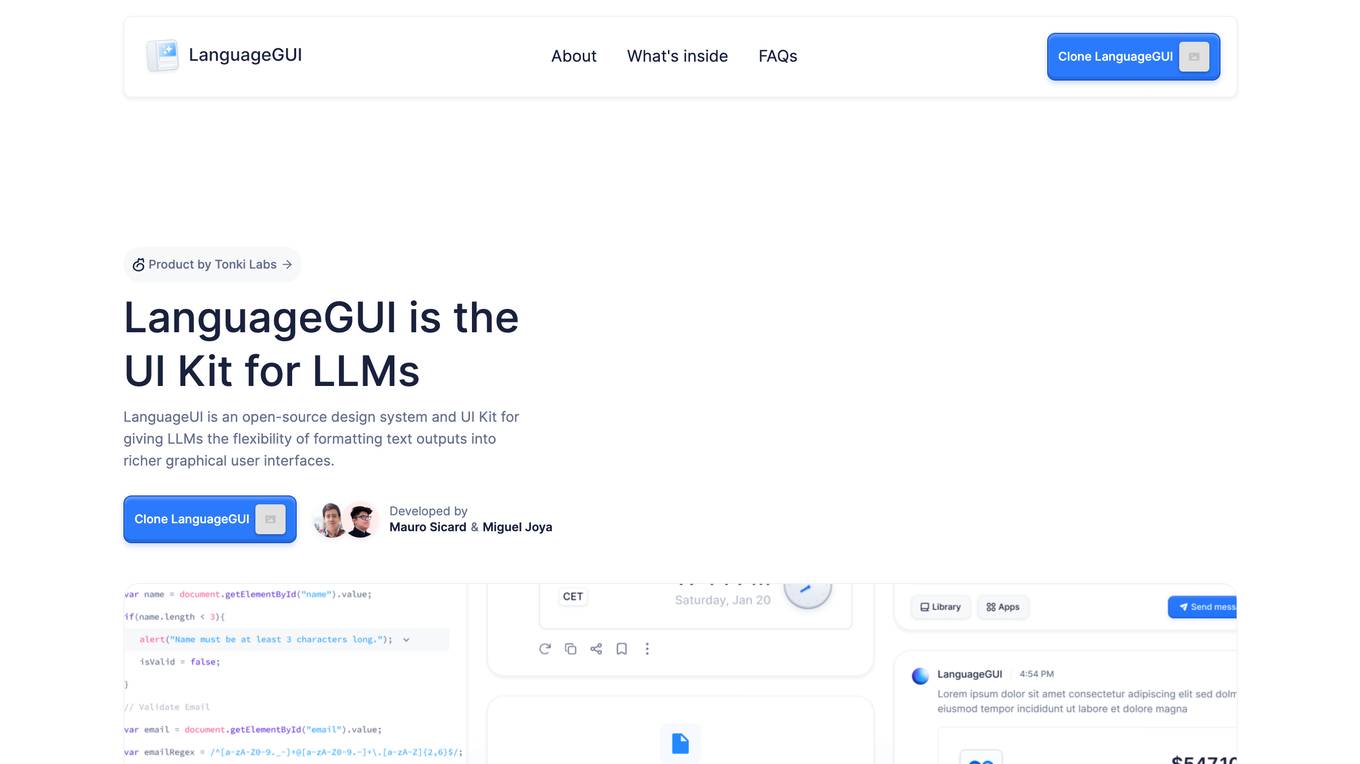
LanguageGUI
LanguageGUI is an open-source design system and UI Kit for giving LLMs the flexibility of formatting text outputs into richer graphical user interfaces. It includes dozens of unique UI elements that serve different use cases for rich conversational user interfaces, such as 100+ UI components & customizable screens, 10+ conversational UI widgets, 20+ chat bubbles, 30+ pre-built screens to kickoff your design, 5+ chat sidebars with customizable settings, multi-prompt workflow screen designs, 8+ prompt boxes, and dark mode. LanguageGUI is designed with variables and styles, designed with Figma Auto Layout, and is free to use for both personal and commercial projects without required attribution.
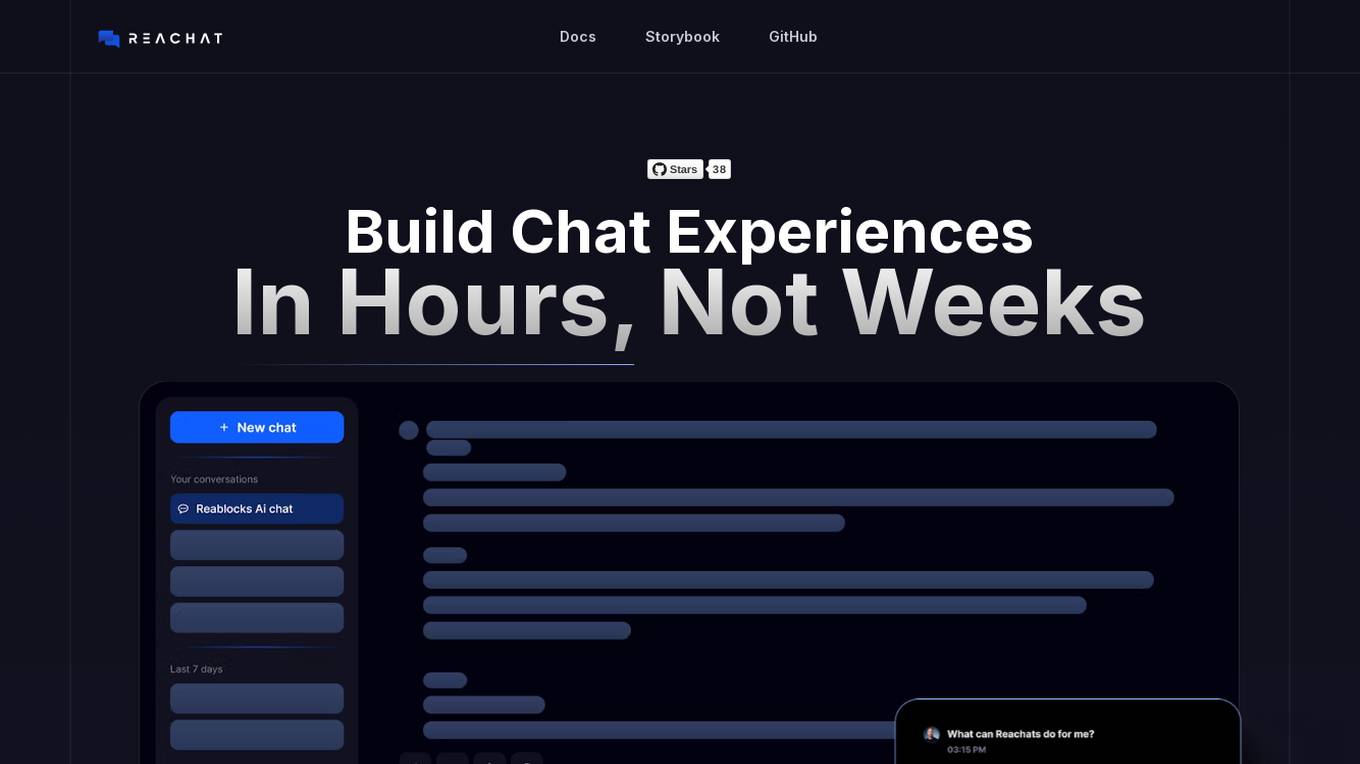
Reachat
Reachat is an open-source UI building library for creating chat interfaces in ReactJS. It offers highly customizable components and theming options, rich media support for file uploads and markdown formatting, an intuitive API for building custom chat experiences, and the ability to seamlessly switch between different AI models. Reachat is battle-tested and used in production across various enterprise products. It is a powerful, flexible, and user-friendly AI chat interface library that allows developers to easily integrate conversational AI capabilities into their applications without the need to spend weeks building custom components. Reachat is not tied to any specific backend or LLM, providing the freedom to use it with any backend or LLM of choice.
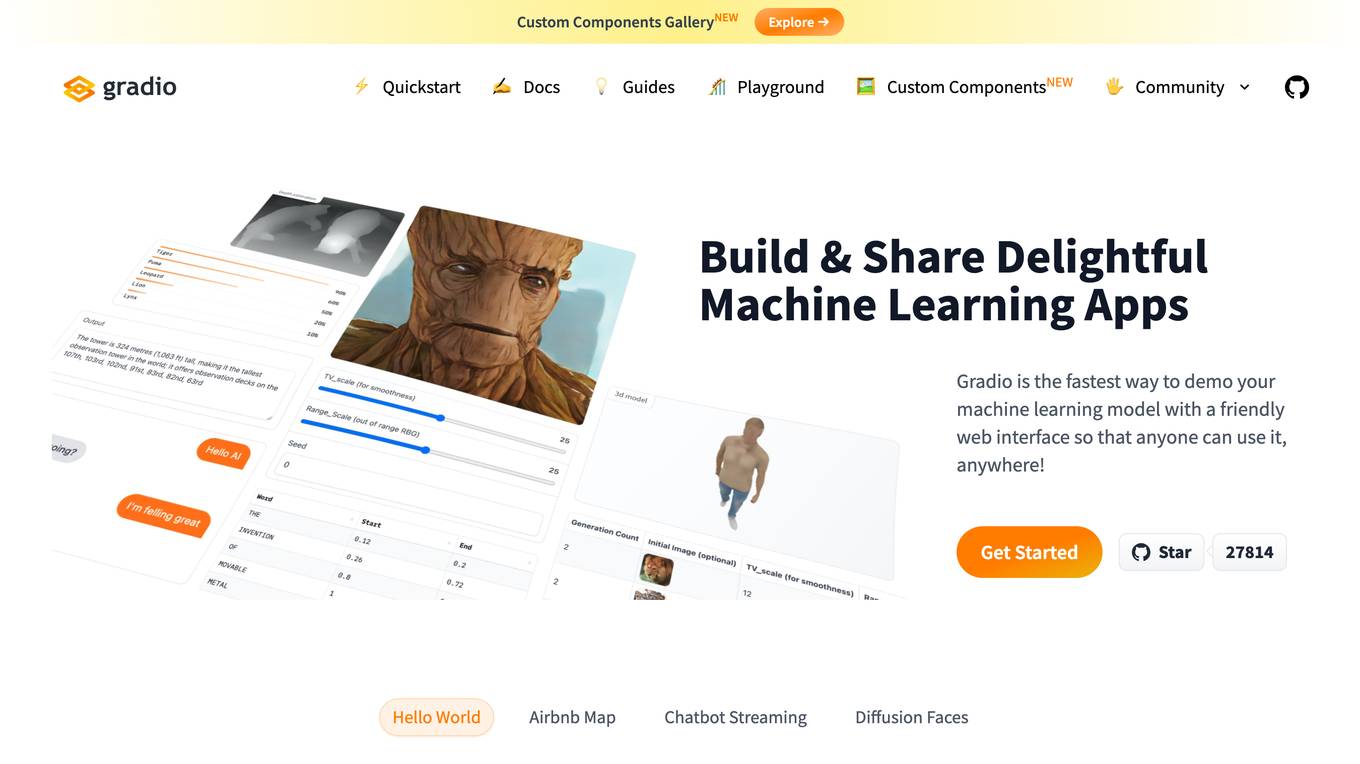
Gradio
Gradio is a tool that allows users to quickly and easily create web-based interfaces for their machine learning models. With Gradio, users can share their models with others, allowing them to interact with and use the models remotely. Gradio is easy to use and can be integrated with any Python library. It can be used to create a variety of different types of interfaces, including those for image classification, natural language processing, and time series analysis.
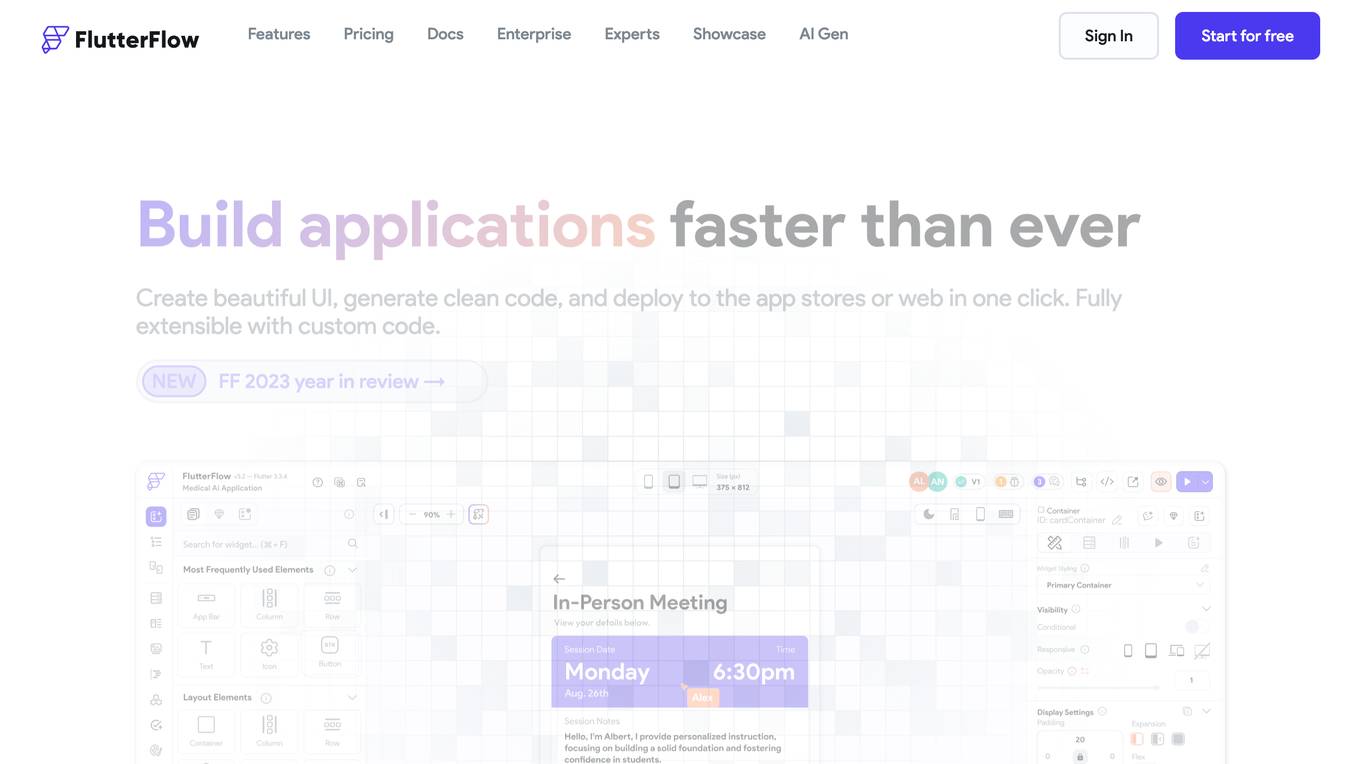
FlutterFlow
FlutterFlow is a low-code development platform that enables users to build cross-platform mobile and web applications without writing code. It provides a visual interface for designing user interfaces, connecting data, and implementing complex logic. FlutterFlow is trusted by users at leading companies around the world and has been used to build a wide range of applications, from simple prototypes to complex enterprise solutions.

Web4All
Web4All is an AI-powered website builder that offers professional website design services at discounted rates. The platform provides a range of features such as AI assistant tools, eCommerce solutions, domain registration, and custom design plans. Users can create, customize, and launch their websites with ease, benefiting from drag-and-drop editors, pre-designed templates, and expert support. Web4All emphasizes full control, endless possibilities, and user-friendly interfaces to help businesses establish a strong online presence. The platform also offers services like SSL certificates, SEO optimization, responsive design, multilingual support, and integrated e-commerce suites.
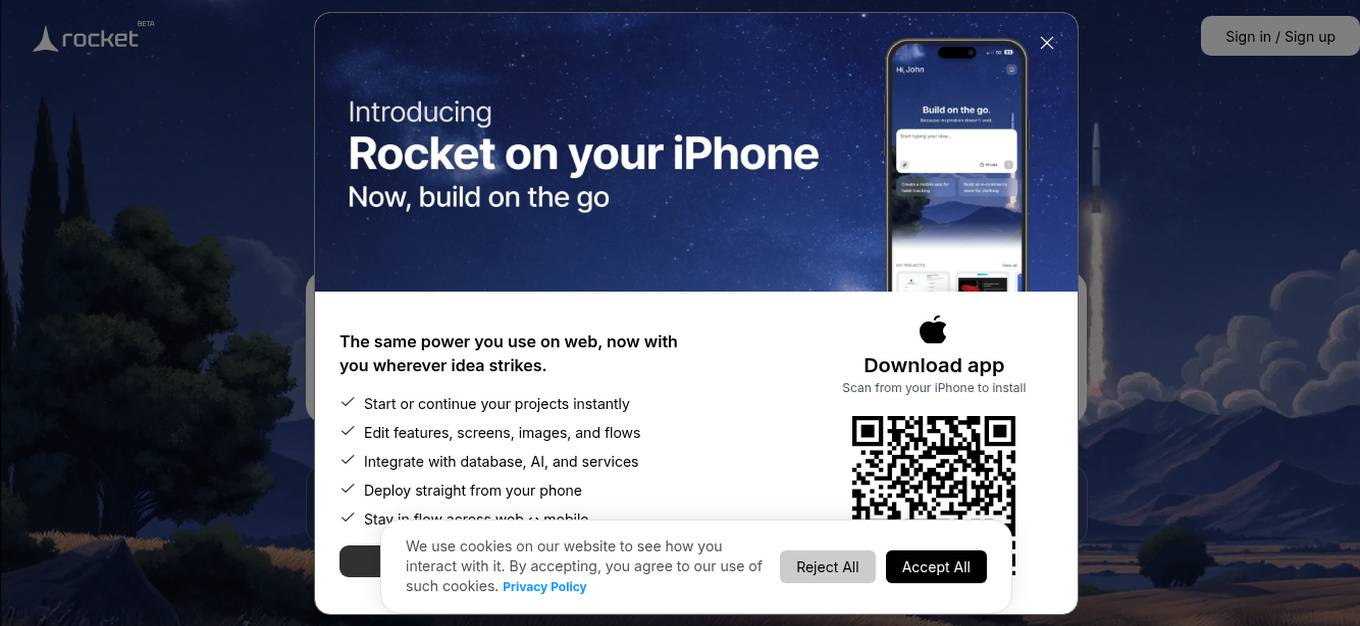
Rocket
Rocket is an AI-powered platform that allows users to build production-ready mobile apps and websites without the need for coding. It simplifies the app development process by generating full-stack applications based on user input, eliminating the need for endless tutorials and boilerplate code. Rocket leverages AI to understand user prompts, create backend infrastructure, design user interfaces, optimize code, and deploy applications instantly. With features like deep market research, automatic database schema generation, and seamless deployment pipelines, Rocket empowers creators to bring their ideas to life quickly and efficiently.

SoundHound
SoundHound is a leading innovator of conversational intelligence and voice AI technologies. Our independent voice AI platform is built for more natural conversation, enabling businesses to create customized and scalable voice AI solutions for their specific industries and use cases. With SoundHound, you can build voice assistants, enhance smart devices, improve customer experiences, and drive business value.
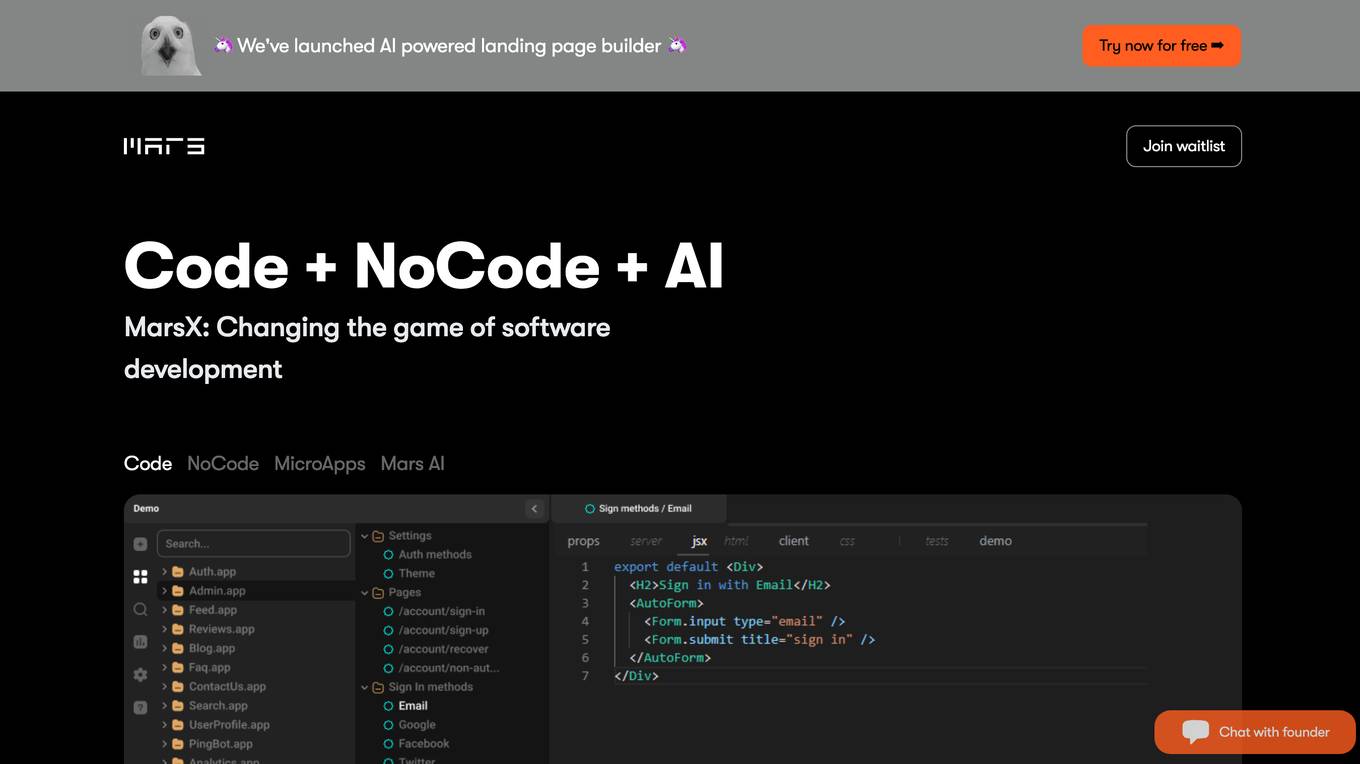
MarsX
MarsX is a revolutionary dev tool that seamlessly integrates AI, NoCode, Code, and MicroApps, empowering developers to create innovative software solutions with unprecedented speed and efficiency. At its core, MarsX offers a comprehensive suite of features that cater to the diverse needs of developers, from AI-powered landing page builders to a vast Micro AppStore brimming with ready-to-use Micro-Apps. These Micro-Apps, meticulously crafted by developers worldwide, provide instant access to a plethora of functionalities, enabling developers to rapidly assemble complex applications without the need for extensive coding. MarsX's commitment to innovation extends beyond its core offerings, as evidenced by its continuous development of cutting-edge tools such as AI website builders and AI-powered UI generators. These tools leverage the transformative power of AI to streamline the development process, allowing developers to focus on their creativity and strategic decision-making. By harnessing the collective knowledge and expertise of a global developer community, MarsX fosters a collaborative environment where developers can share their creations, learn from each other, and contribute to the ever-expanding ecosystem of Micro-Apps. MarsX's mission is to democratize software development, making it accessible to individuals and teams of all skill levels. With its intuitive interface, comprehensive documentation, and a supportive community, MarsX empowers developers to bring their ideas to life, transforming complex software development into an accessible and enjoyable experience.
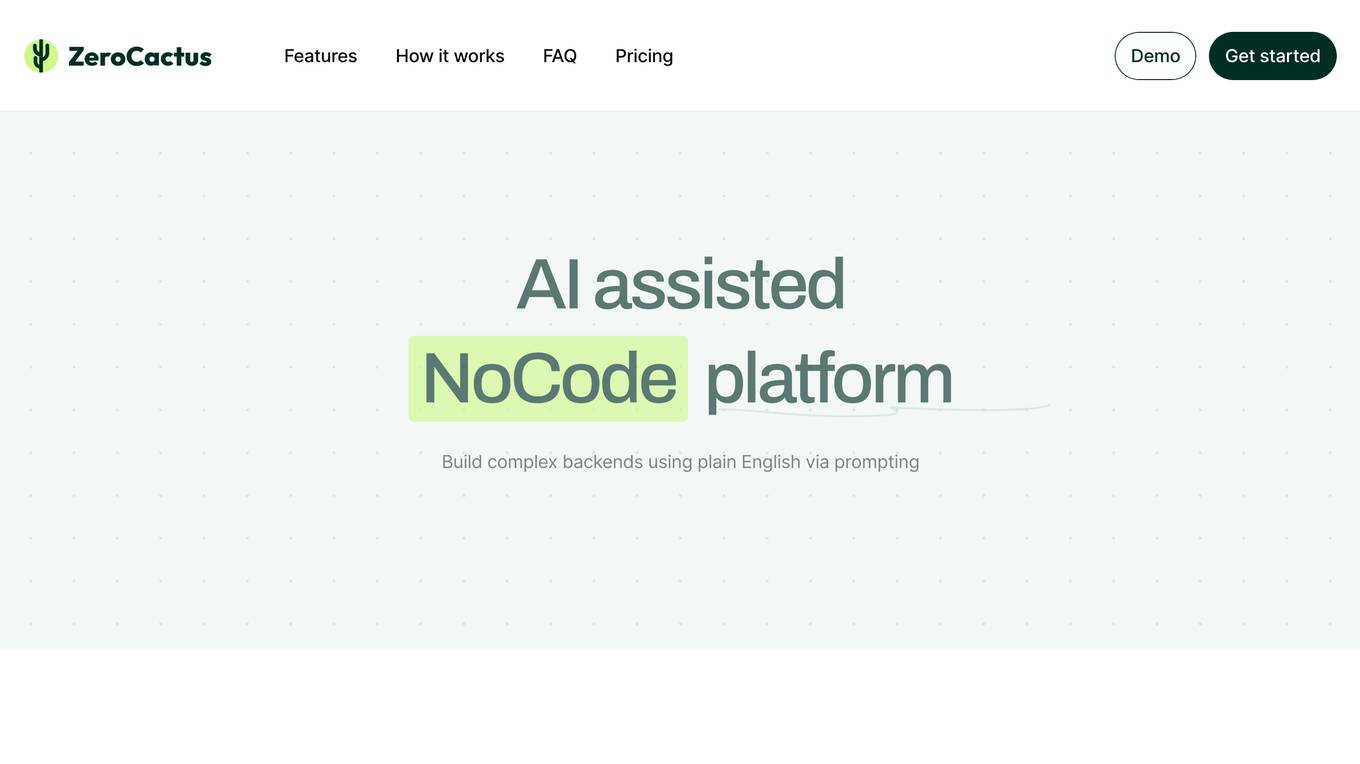
ZeroCactus
ZeroCactus is an AI-assisted NoCode platform that allows users to build complex backends using plain English via prompting. It is a strategic choice for businesses looking for a world-class development platform that is built for performance and delivers to the highest standard every time. ZeroCactus offers a fluid experience, starting as NoCode in MVP and continuing with code as the business grows. Its no-code solution is seamless and easy to use, and it provides endless possibilities. ZeroCactus is also easily customized, and its team of experts is available to deliver what users need now. ZeroCactus uses advanced AI technology to maximize the NoCode experience while ensuring personalized support from expert coders when users need it most. It provides powerful solutions at all times, and its craft is powered by advanced AI technology combined with a hint of human touch. Users can start by building their solutions and MVP with the NoCode experience, and the control is always in their hands. ZeroCactus has no limits and is suited to many businesses, providing creative freedom.
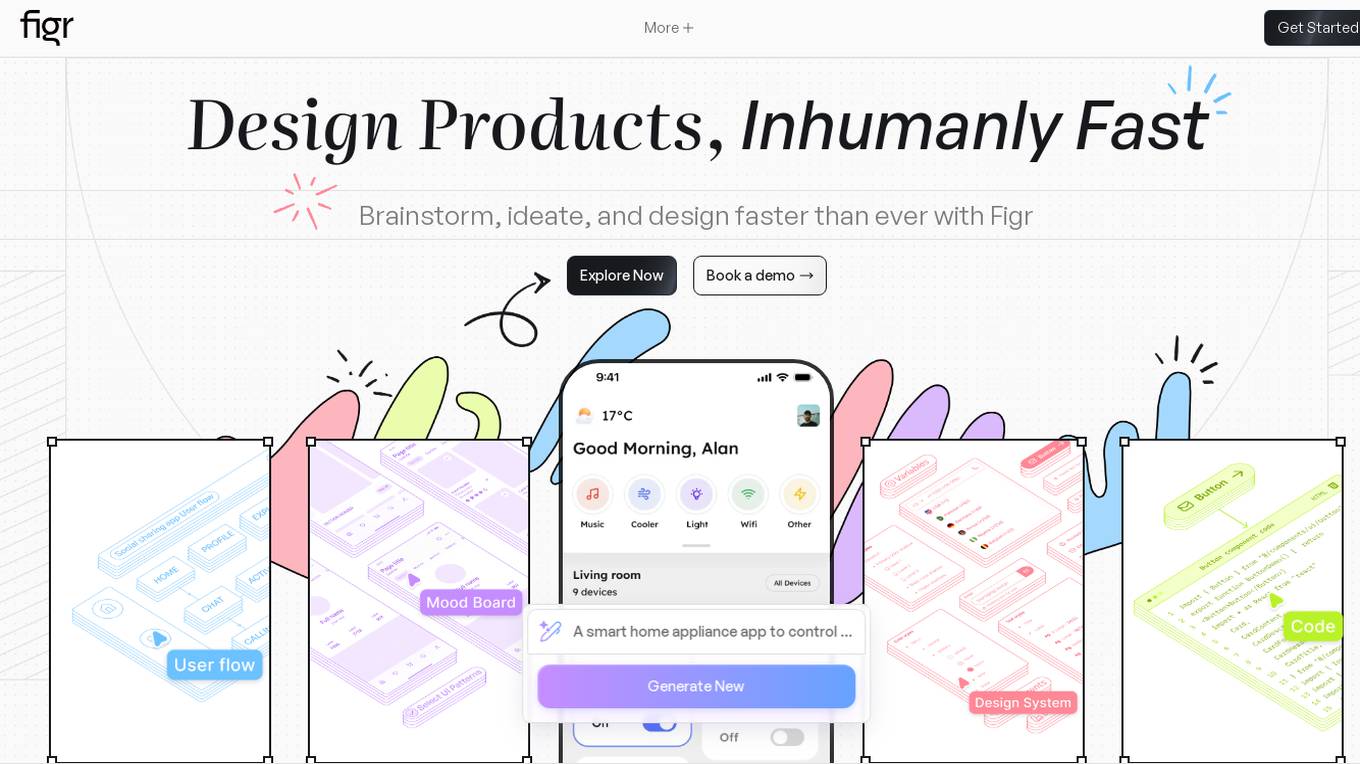
Figr
Figr is an AI-driven platform that specializes in UI design and workflow optimization. It leverages artificial intelligence to streamline the design process, making it more efficient and user-friendly. With Figr, users can create stunning user interfaces with ease, thanks to its intuitive tools and smart suggestions. The platform caters to both beginners and experienced designers, offering a range of features to enhance productivity and creativity. Figr aims to revolutionize the way UI design is approached by integrating AI technology seamlessly into the workflow.
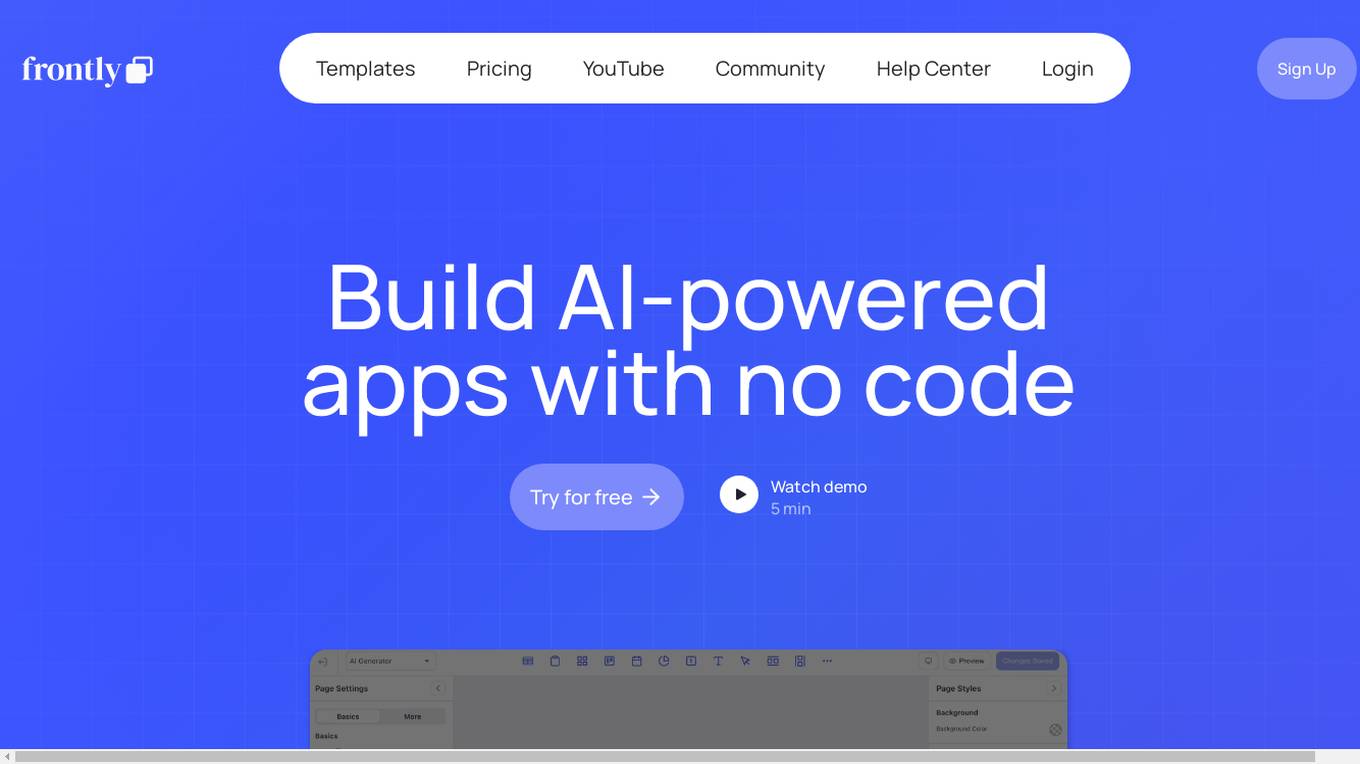
Frontly
Frontly is an AI-powered application that allows users to build AI-powered apps without the need for coding skills. Users can create modern and visually appealing interfaces, control data access with precision, and brand their apps professionally. With features like automating tasks, generating content, and integrating with Google Sheets, Frontly aims to streamline app creation for individuals and businesses. The platform offers pricing plans suitable for small teams, startups, mid-sized teams, and enterprises, making AI app development accessible to a wide range of users.
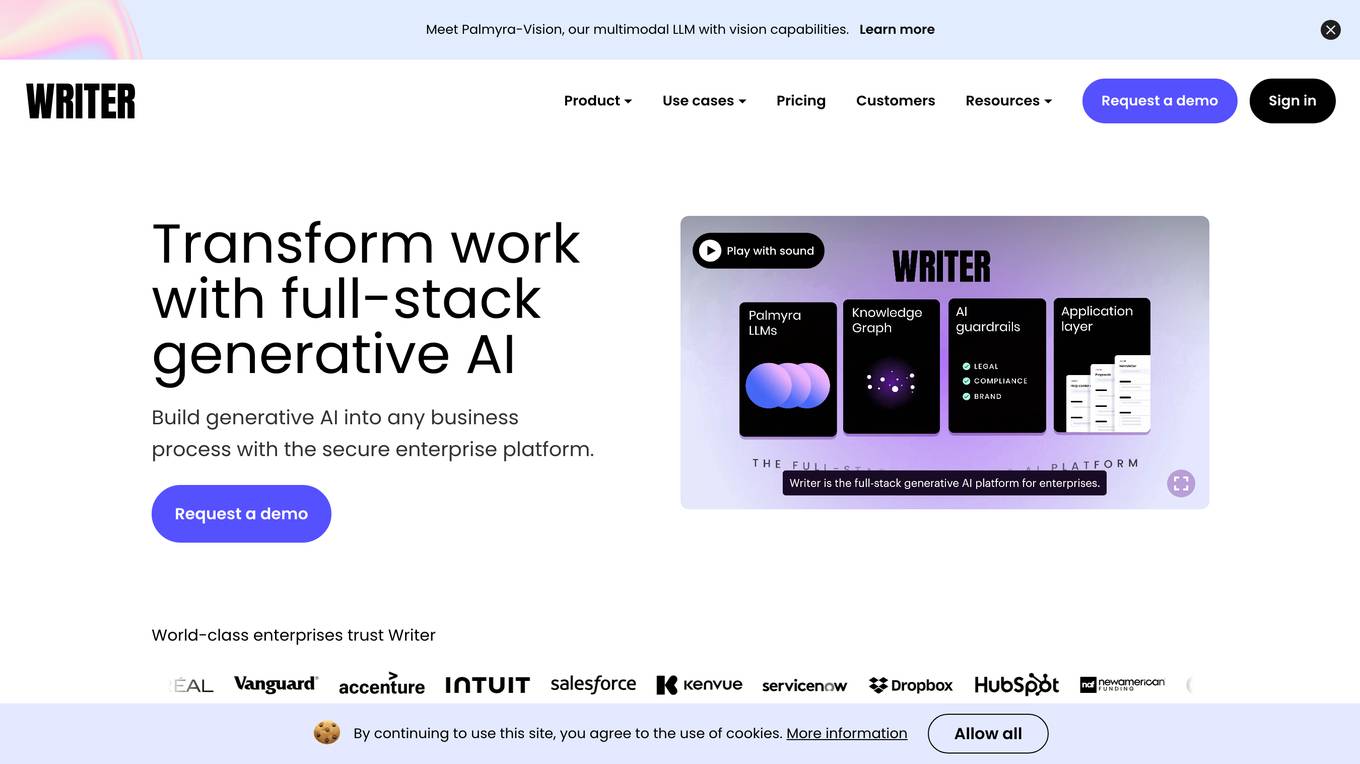
Writer
Writer is a full-stack generative AI platform that enables businesses to build and deploy custom AI applications for a wide range of use cases, including digital assistants, content generation, summarization, and data analysis. Writer's platform is designed to be accurate, scalable, and cost-effective, and it offers a variety of features to help businesses get the most out of generative AI, including: - Palmyra LLMs: Writer's family of LLMs is purpose-built for the enterprise and offers a range of capabilities, including question-answering, image analysis, and multilingual translation. - Knowledge Graph: Writer's Knowledge Graph anchors generative AI in your company data, resulting in higher accuracy and fewer hallucinations. - AI guardrails: Writer's AI guardrails help businesses enforce their regulatory, legal, inclusivity, and brand rules across all work, whether it's created by their people or AI. - Flexible application layer: Writer's flexible application layer offers a wide range of interfaces to meet your specific needs, whether you're using a prebuilt app, building a custom app, or making requests to our out-of-the-box chat app.
3 - Open Source AI Tools
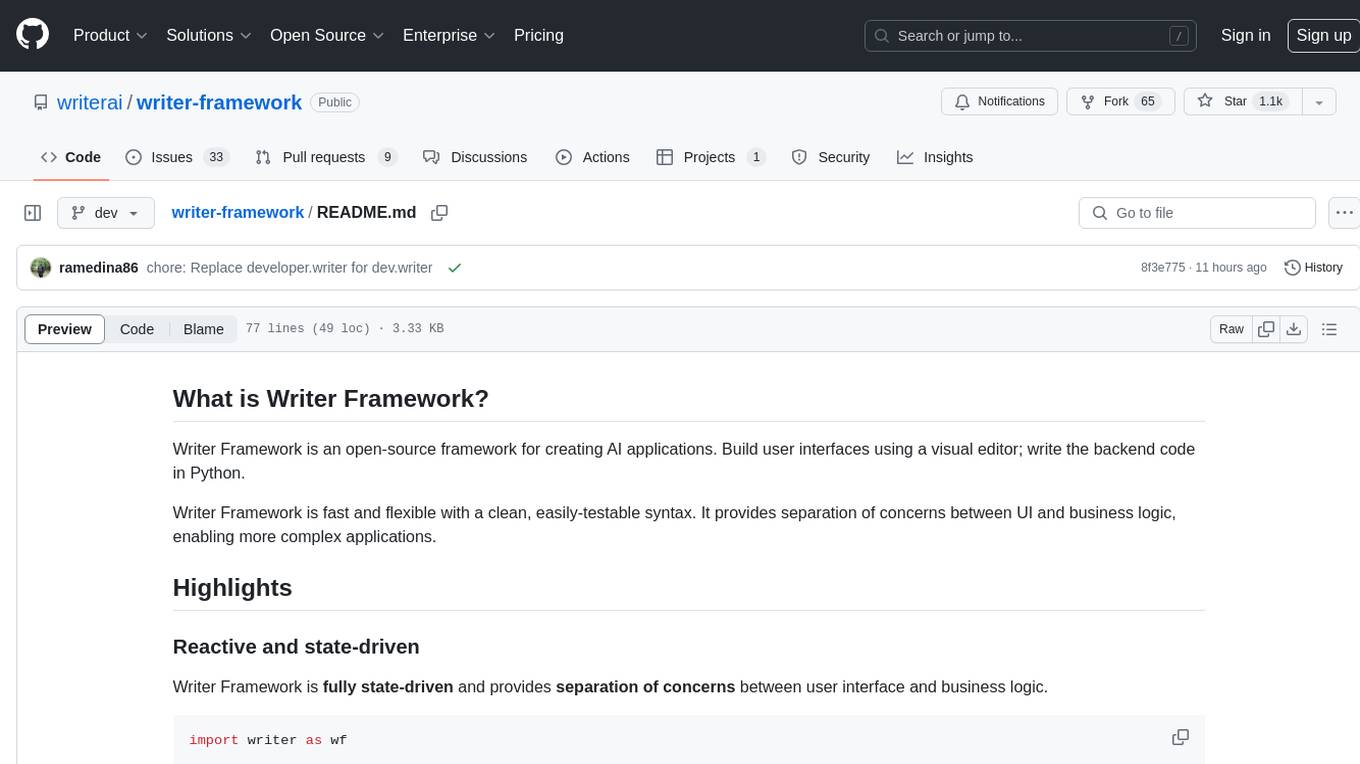
writer-framework
Writer Framework is an open-source framework for creating AI applications. It allows users to build user interfaces using a visual editor and write the backend code in Python. The framework is fast, flexible, and developer-friendly, providing separation of concerns between UI and business logic. It is reactive and state-driven, allowing for highly customizable elements without the need for CSS. Writer Framework is designed to be fast, with minimal overhead on Python code, and uses WebSockets for synchronization. It is contained in a standard Python package, supports local code editing with instant refreshes, and enables editing the UI while the app is running.
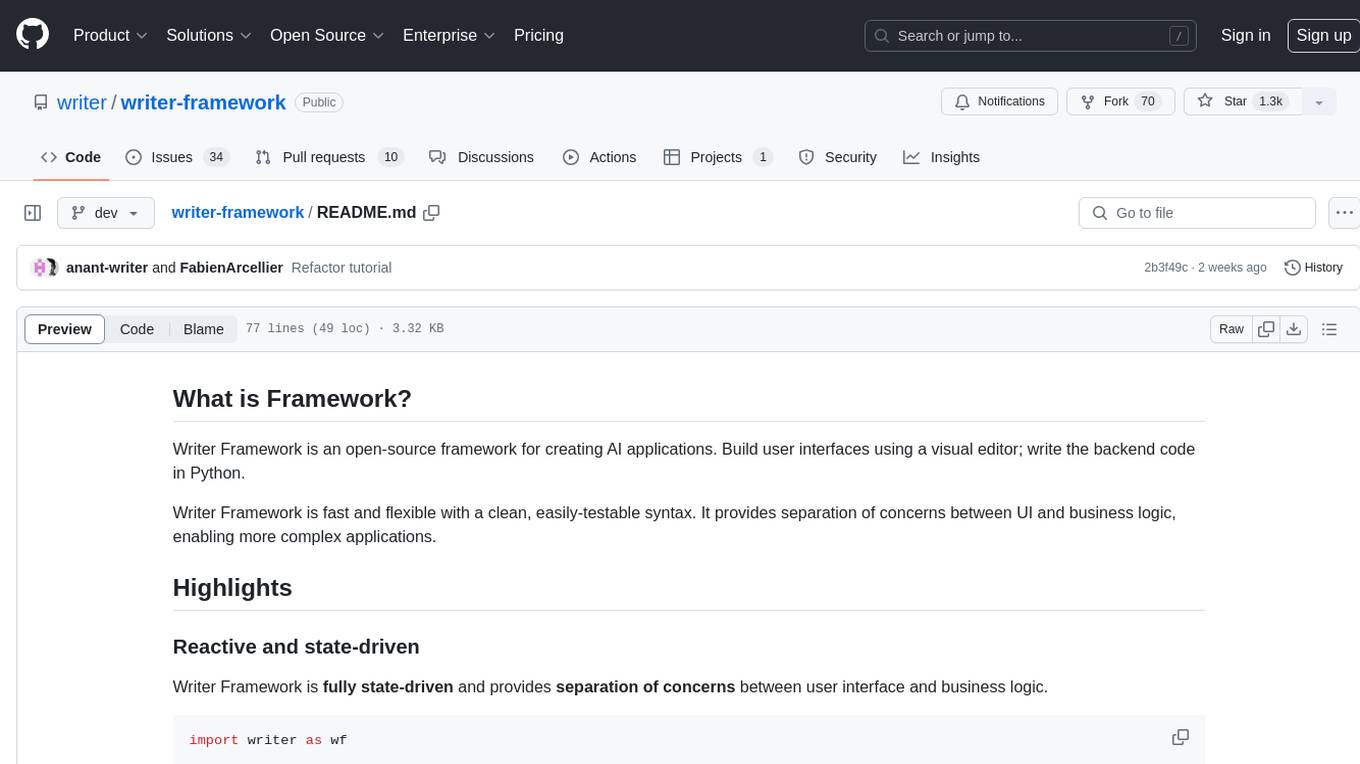
writer-framework
Writer Framework is an open-source framework for creating AI applications. It allows users to build user interfaces using a visual editor and write the backend code in Python. The framework is fast, flexible, and provides separation of concerns between UI and business logic. It is reactive and state-driven, highly customizable without requiring CSS, fast in event handling, developer-friendly with easy installation and quick start options, and contains full documentation for using its AI module and deployment options.
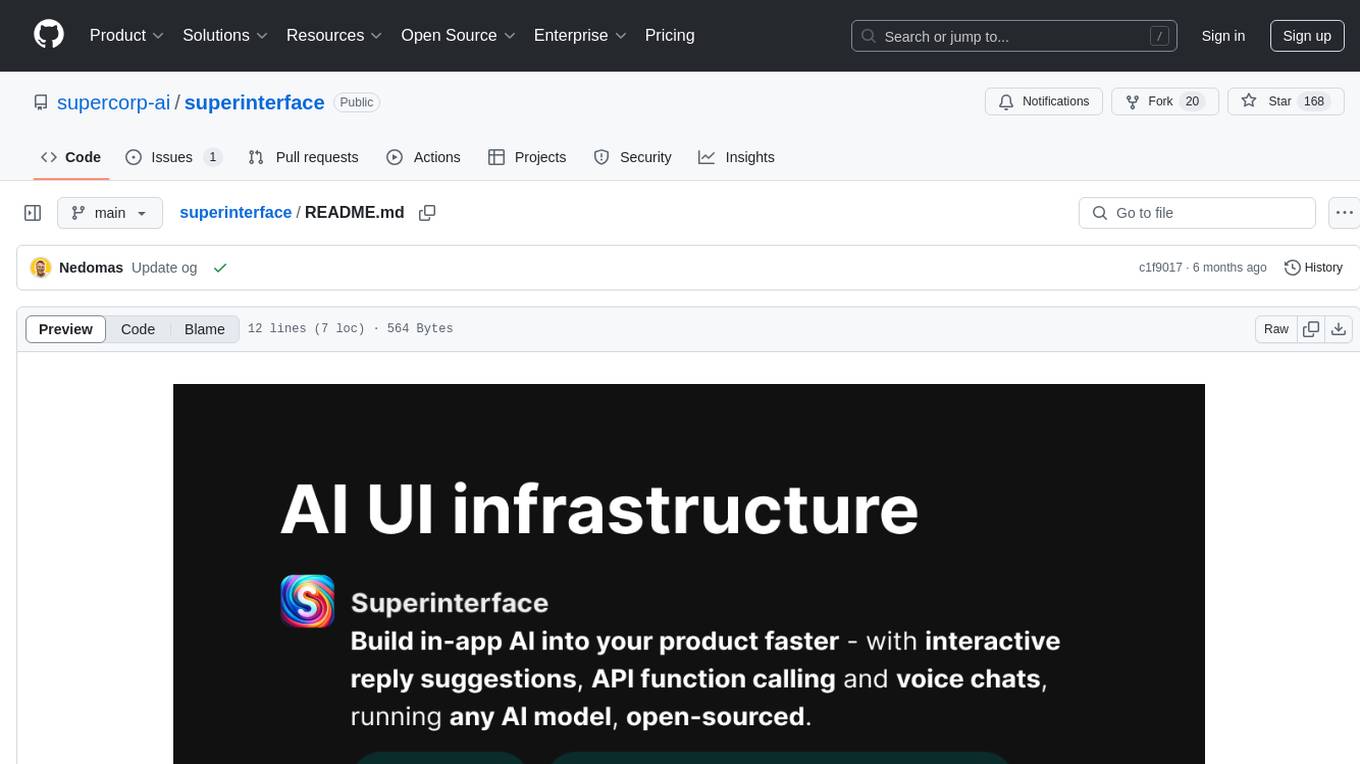
superinterface
Superinterface is an AI assistants library for building AI capabilities into your app or website. It allows you to use React components and hooks to create AI-first assistants-based interfaces such as chats and wizards. The project is currently in the process of writing documentation. For more information, visit https://superinterface.ai. Examples are hosted at https://examples-next.superinterface.ai.
20 - OpenAI Gpts
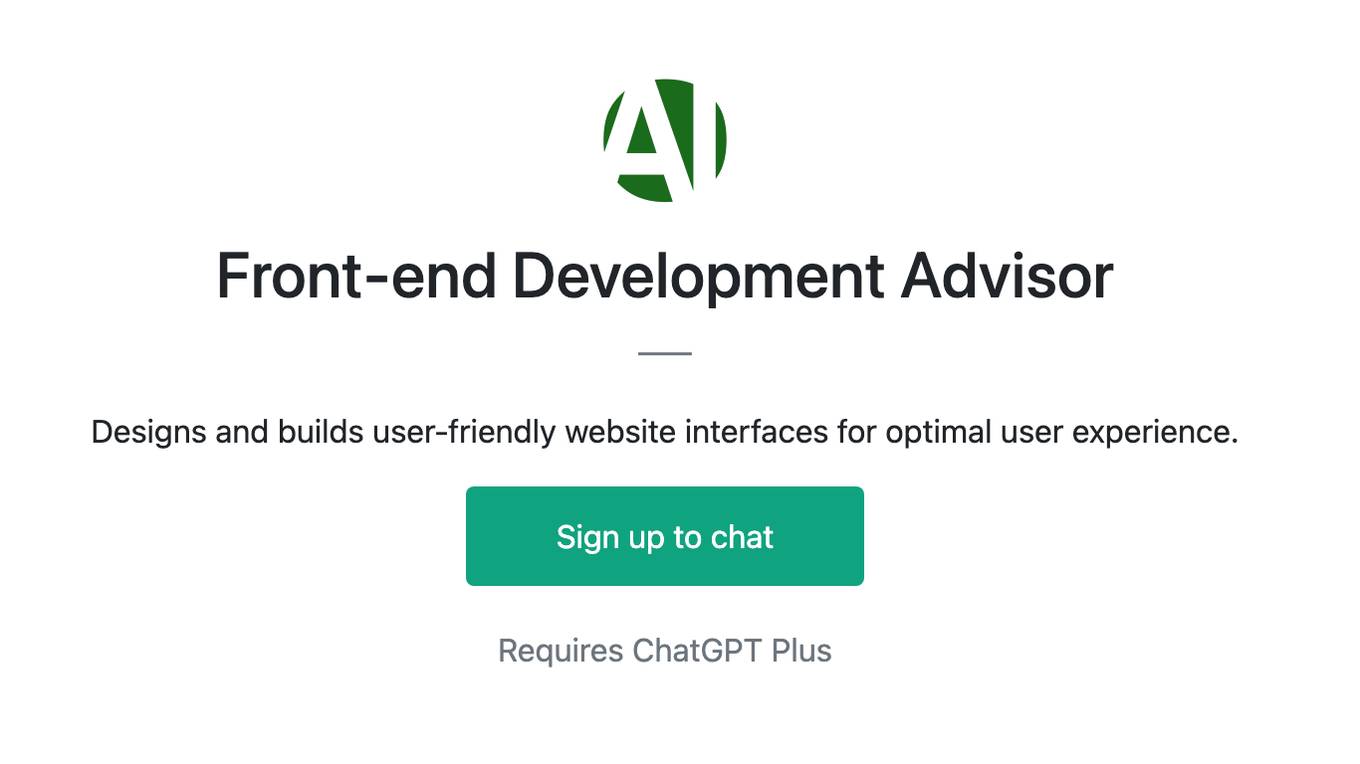
Front-end Development Advisor
Designs and builds user-friendly website interfaces for optimal user experience.
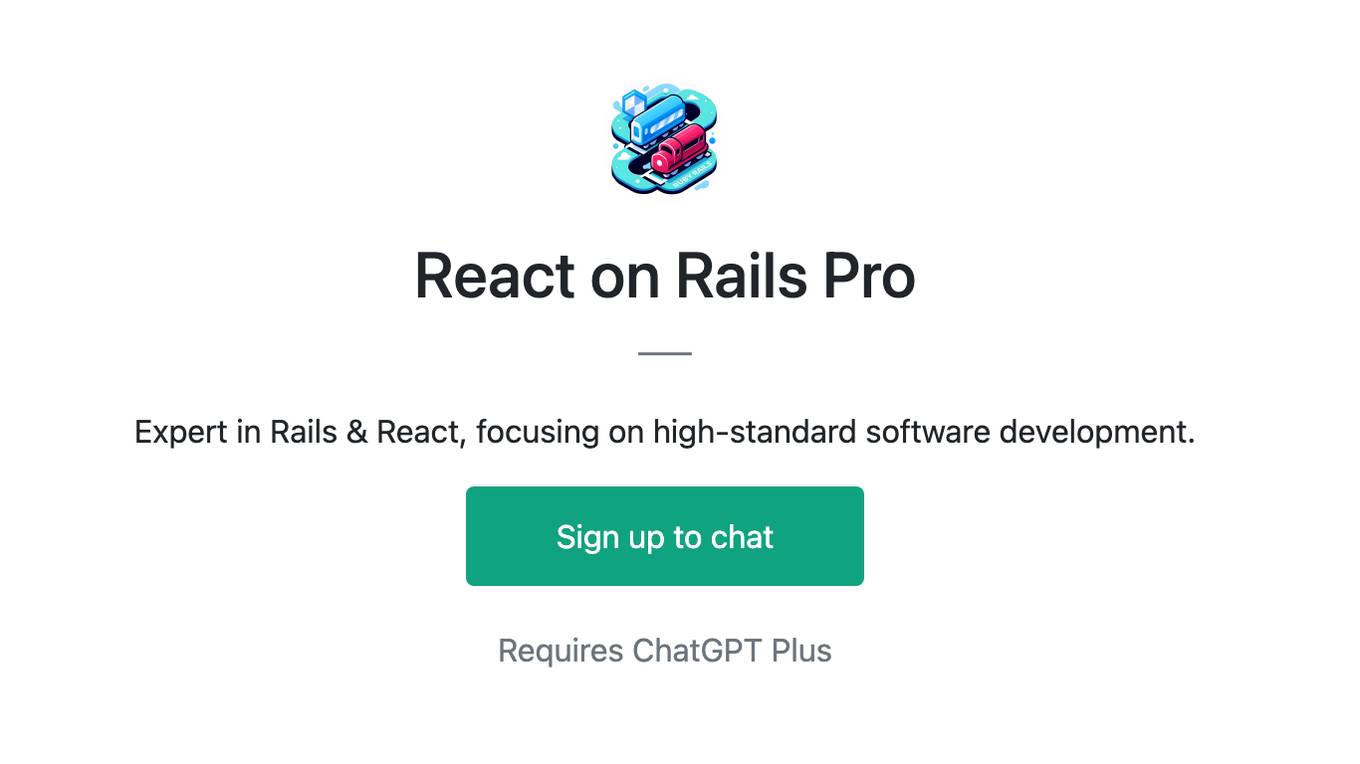
React on Rails Pro
Expert in Rails & React, focusing on high-standard software development.
![[latest] Vue.js GPT Screenshot](/screenshots_gpts/g-LXEGvZLUS.jpg)
[latest] Vue.js GPT
Versatile, up-to-date Vue.js assistant with knowledge of the latest version. Part of the [latest] GPTs family.
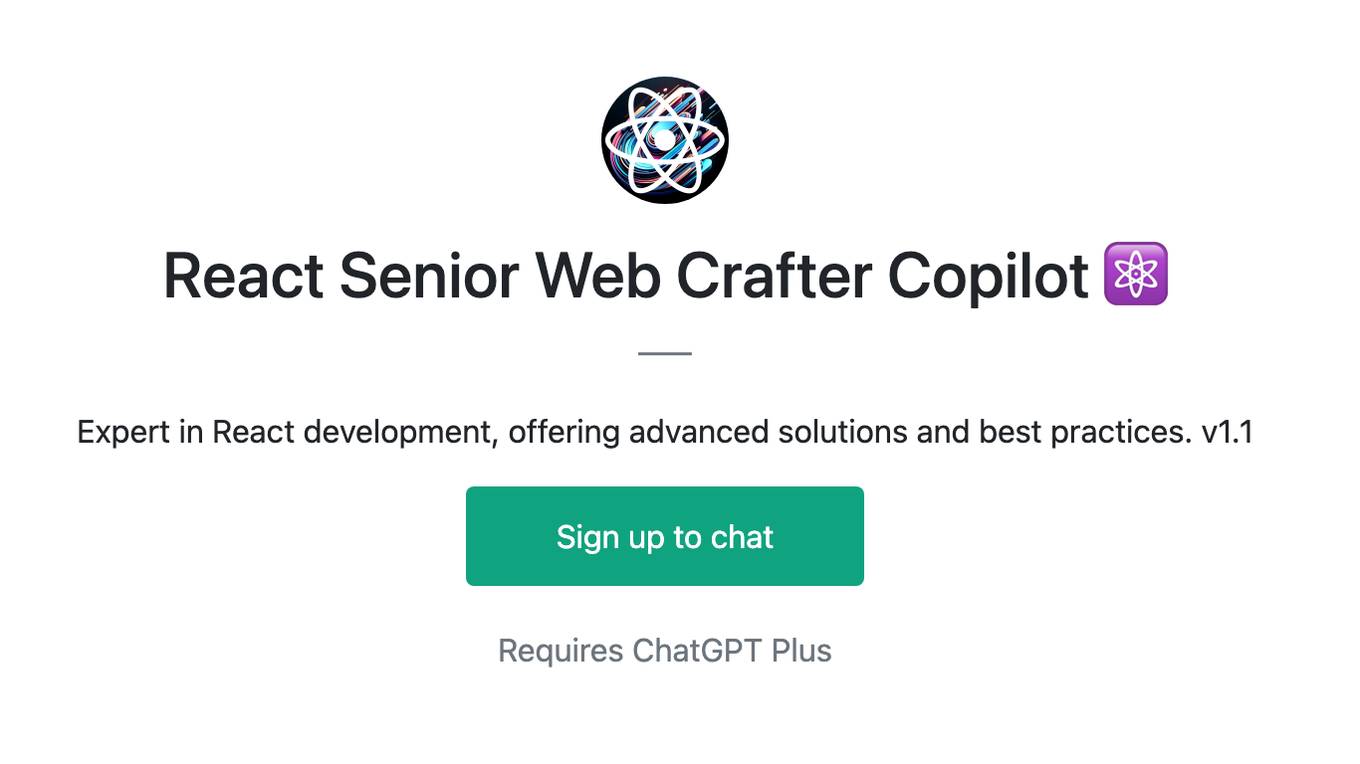
React Senior Web Crafter Copilot ⚛️
Expert in React development, offering advanced solutions and best practices. v1.1
